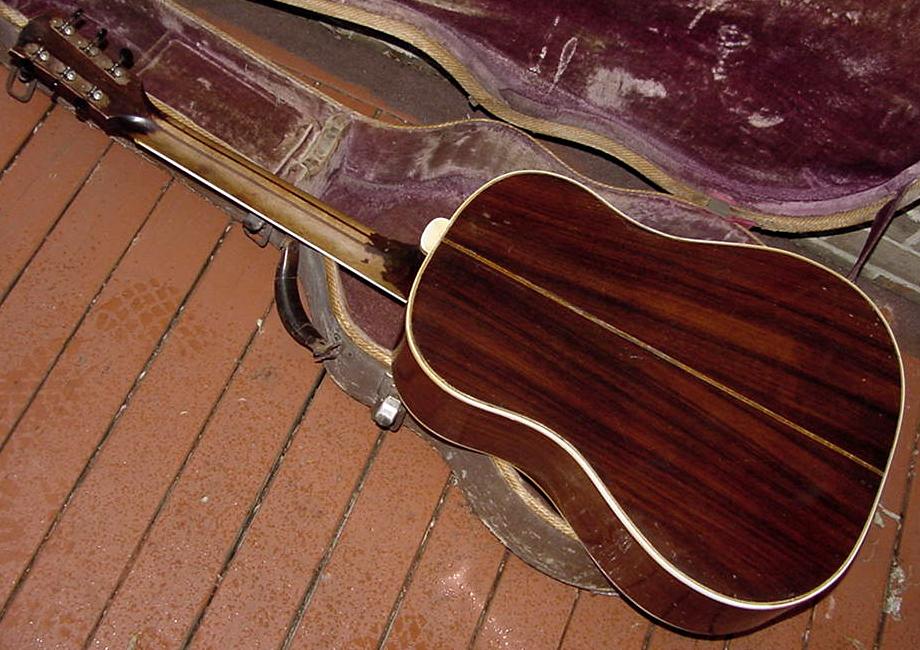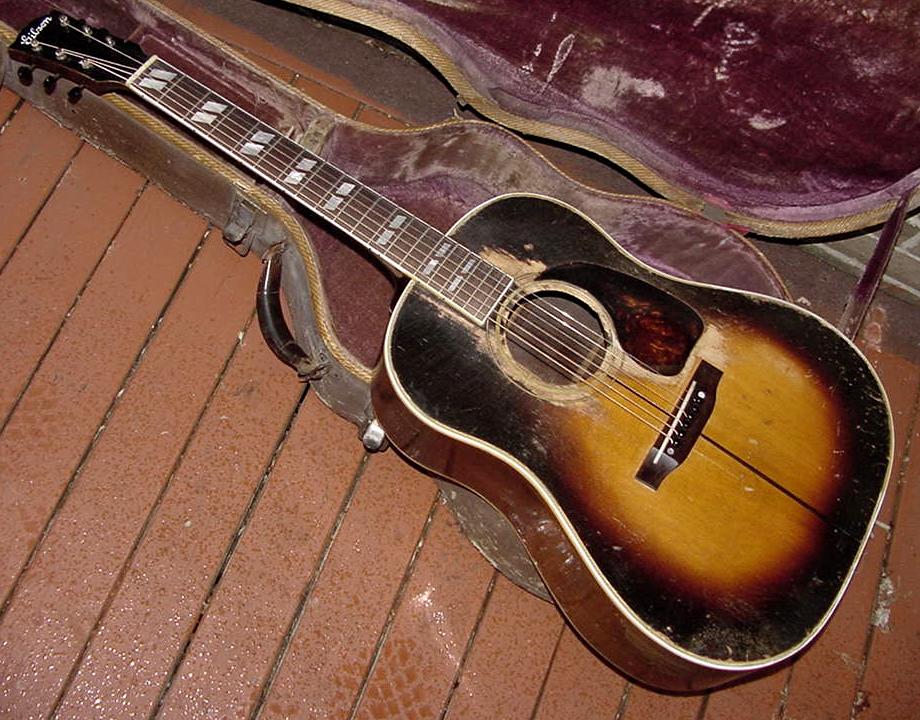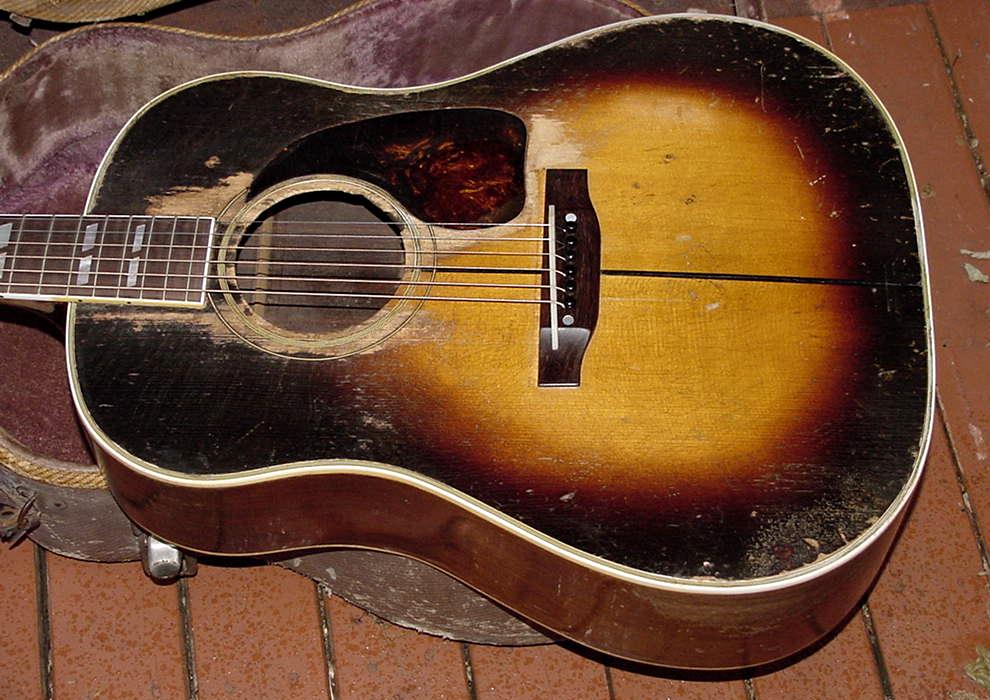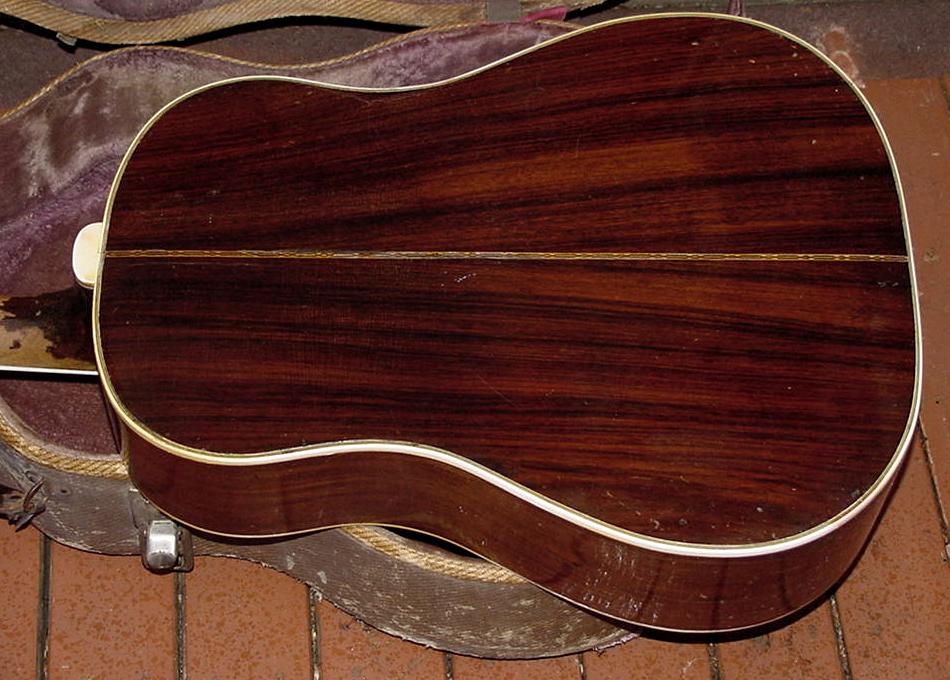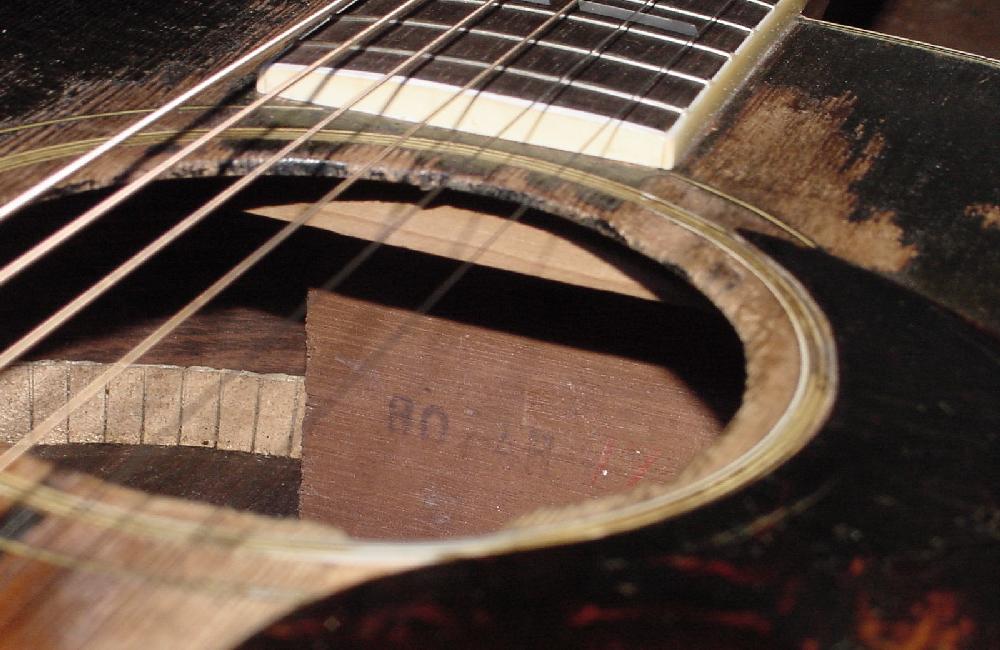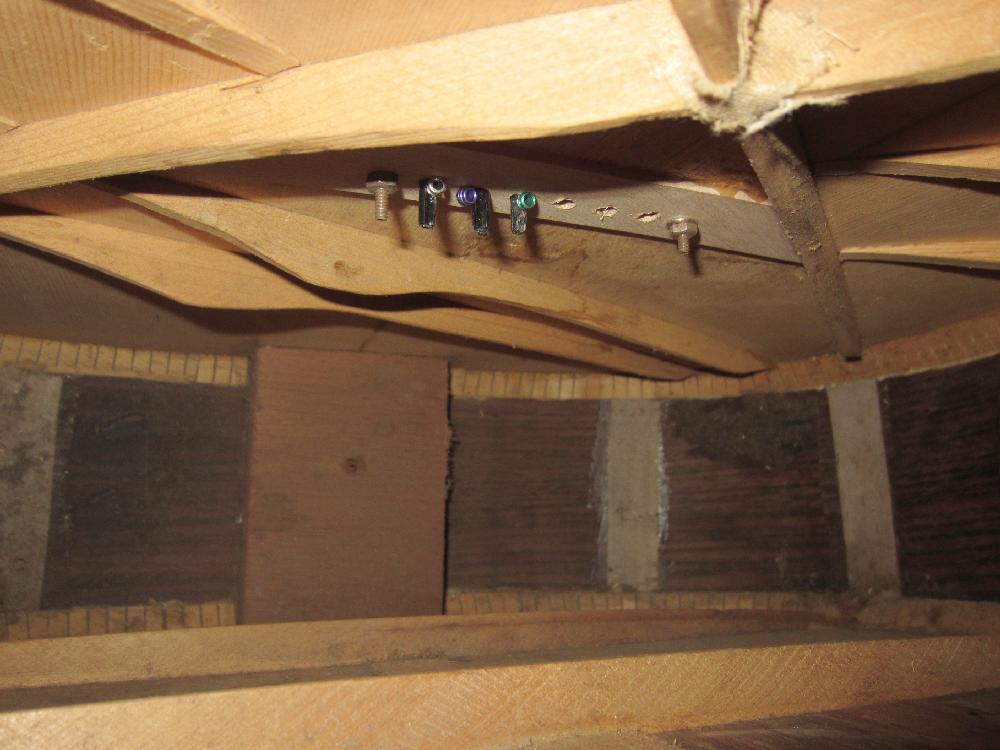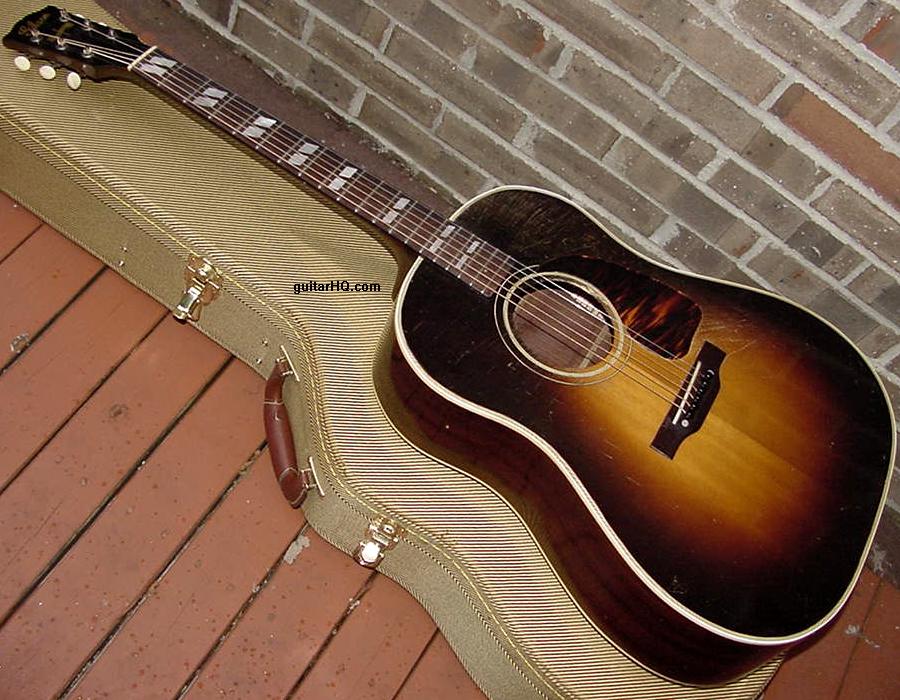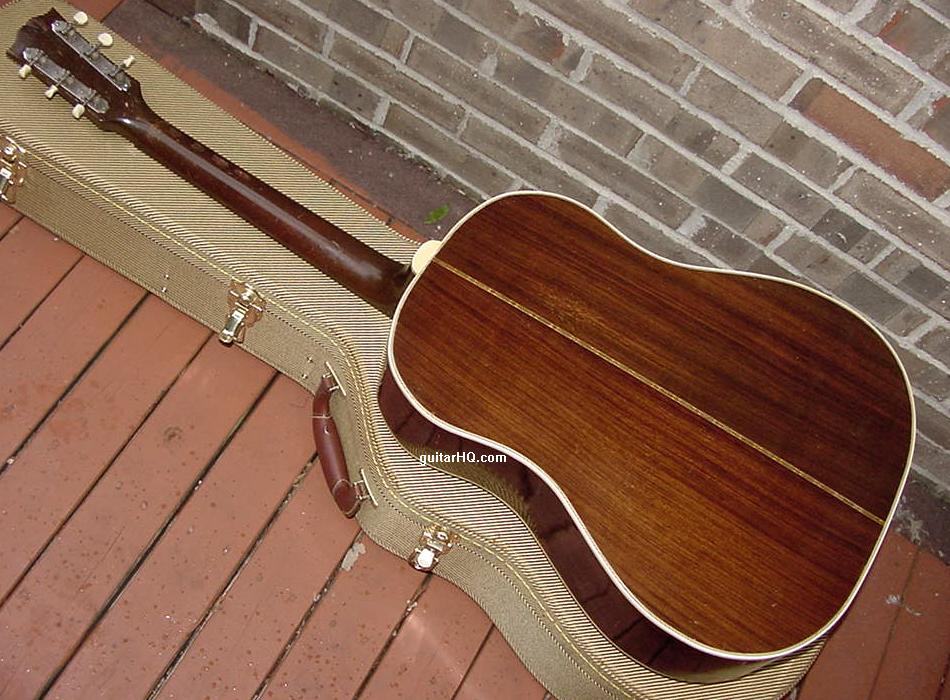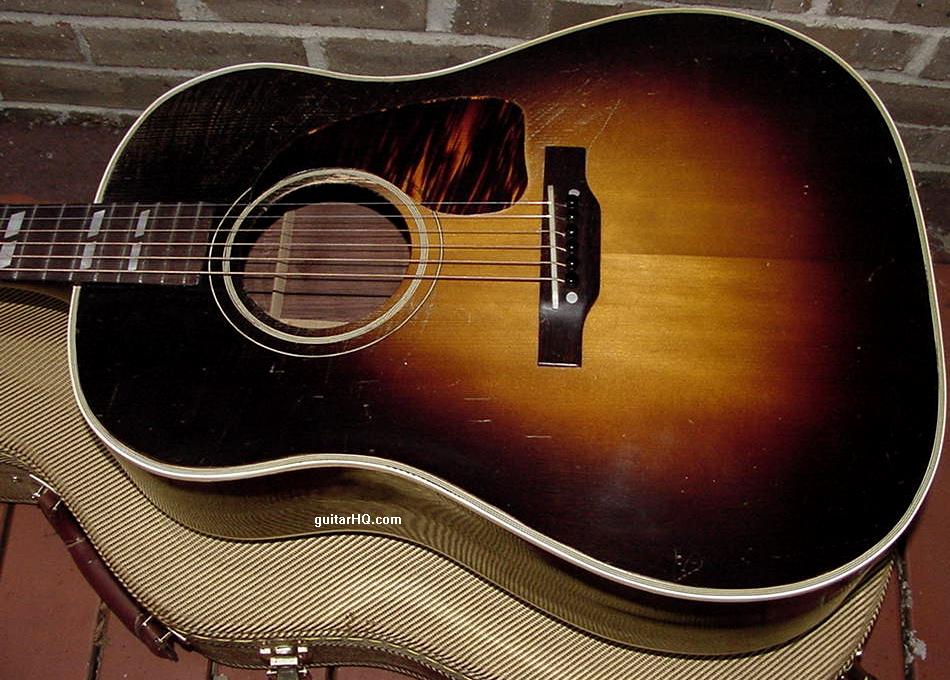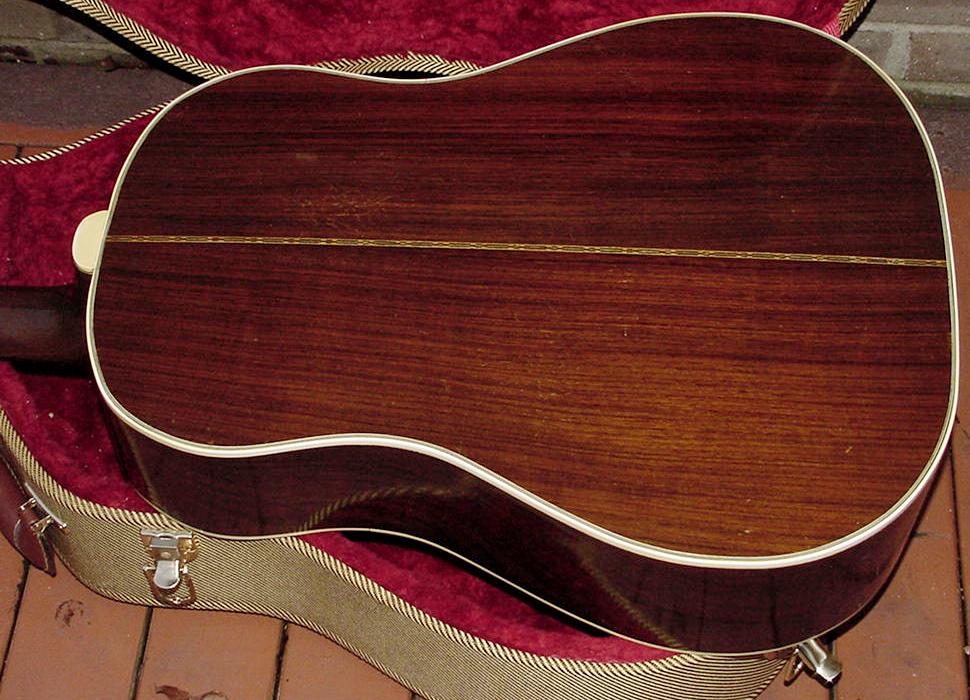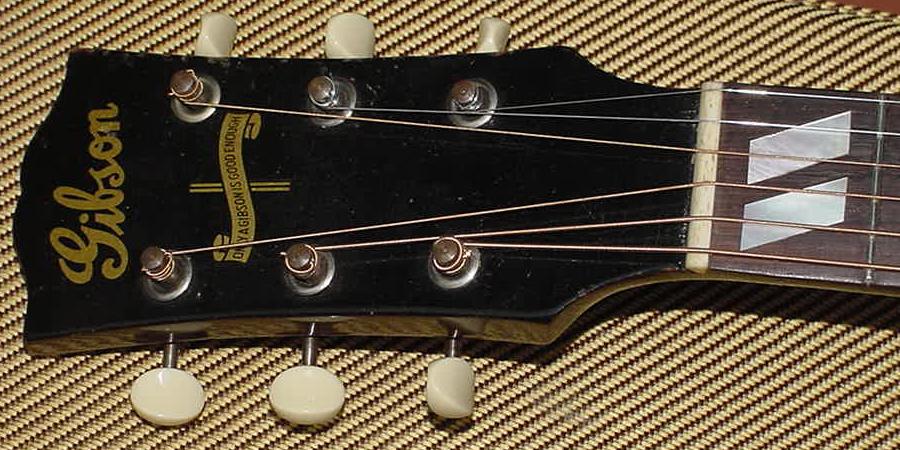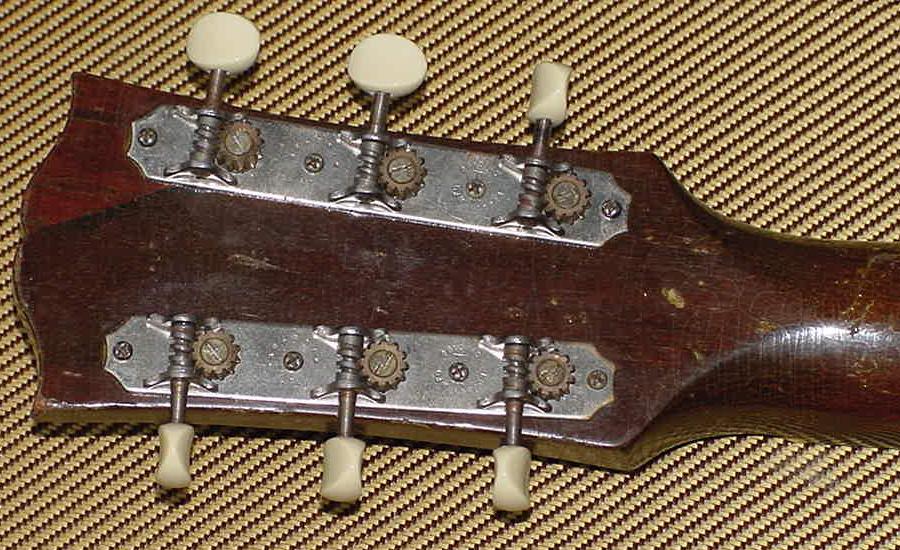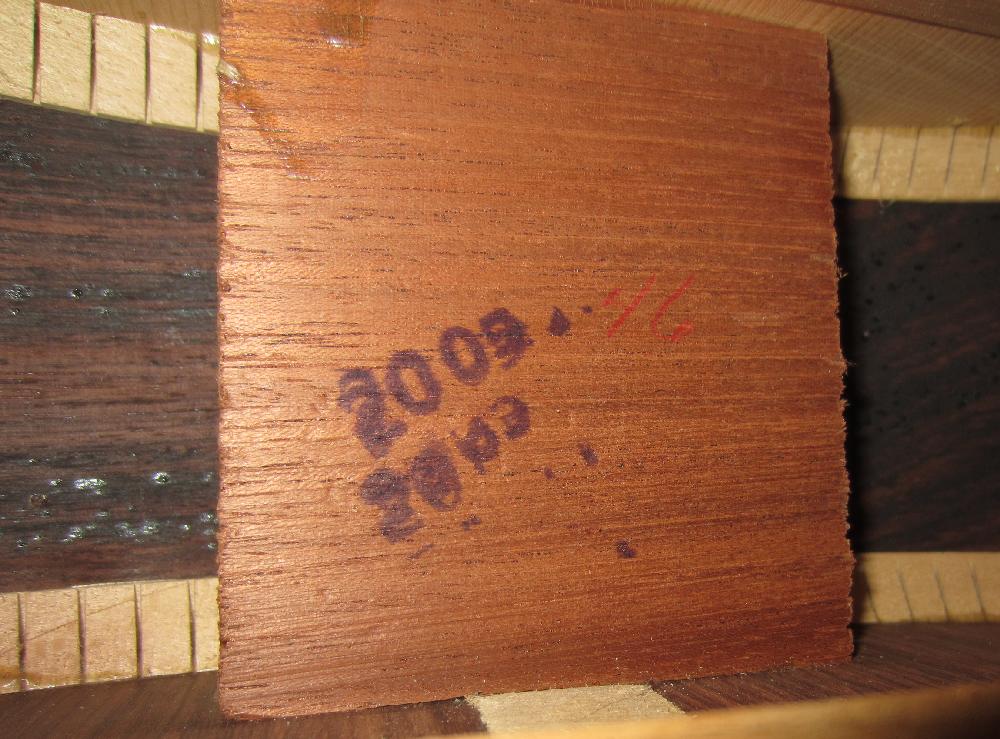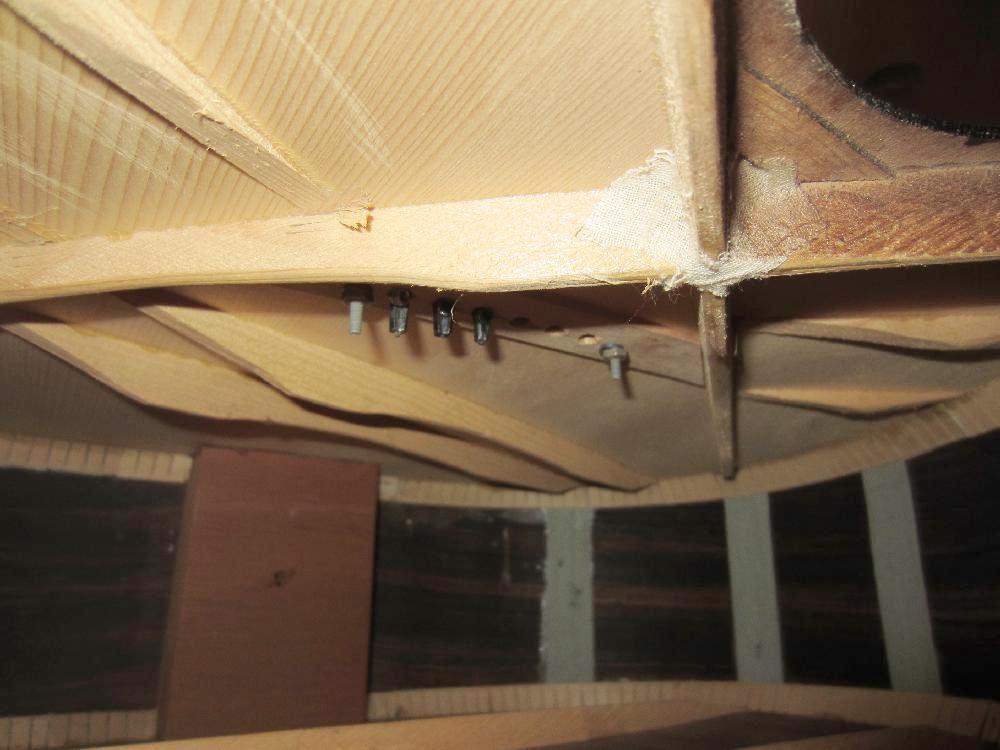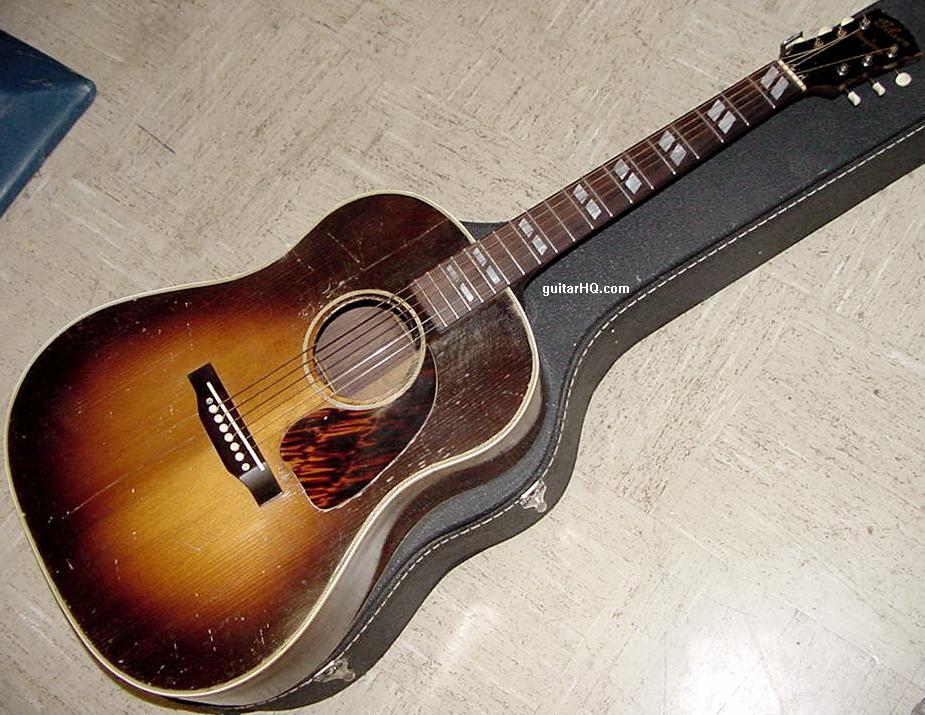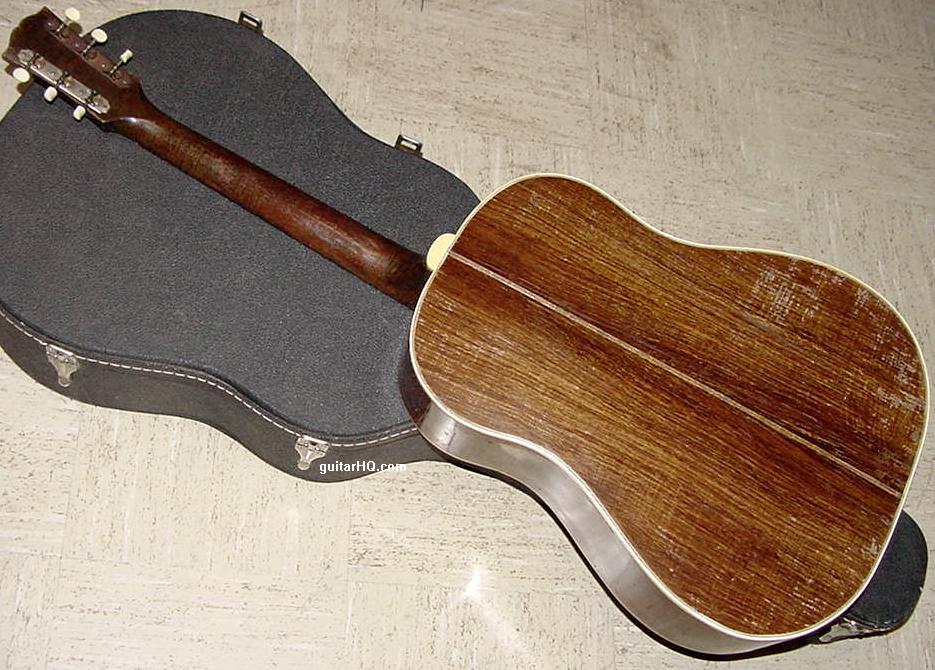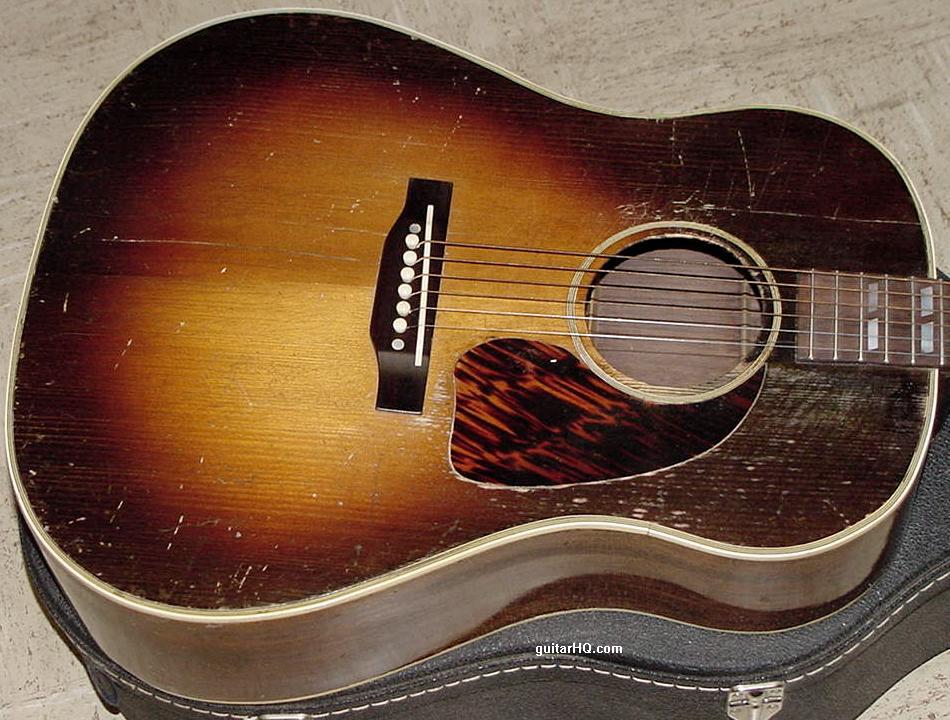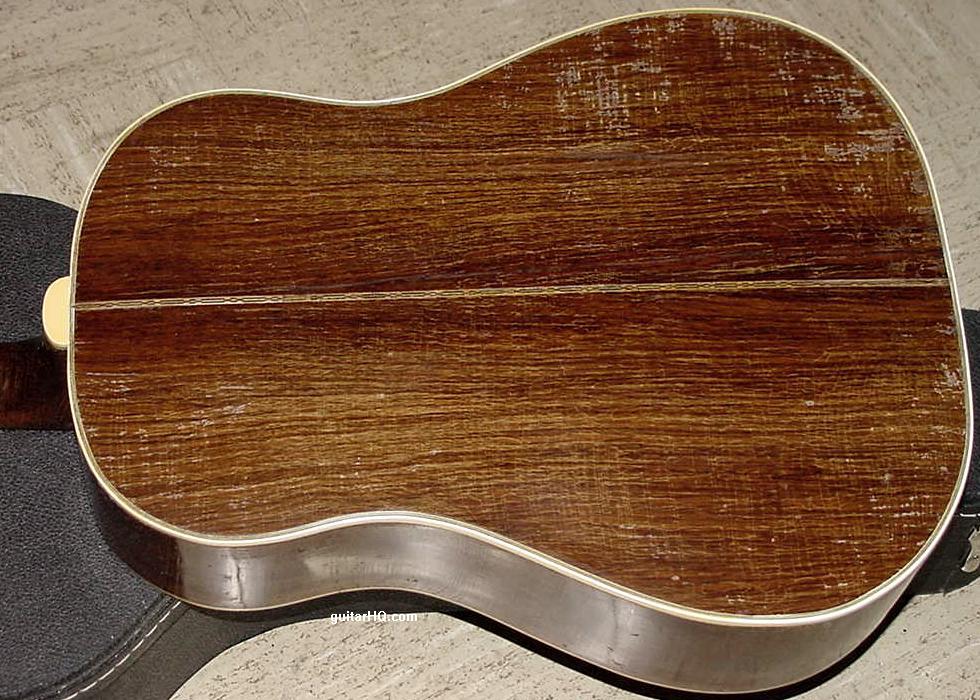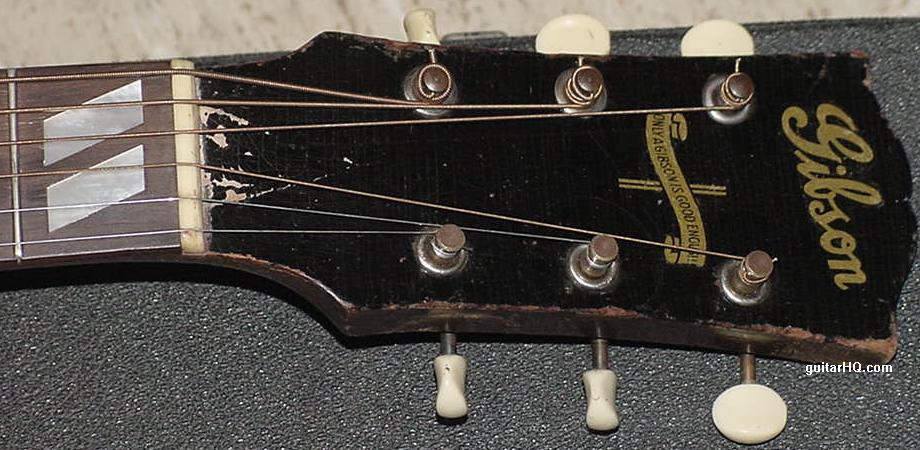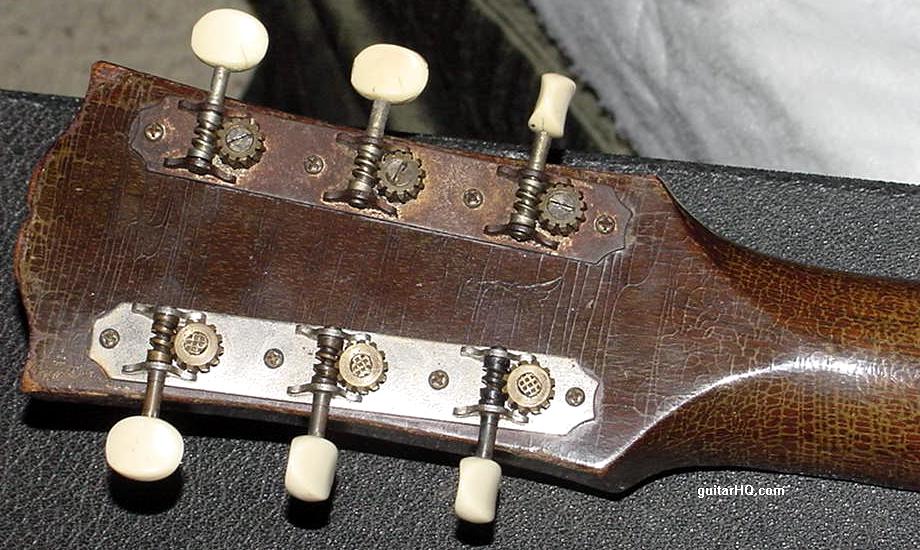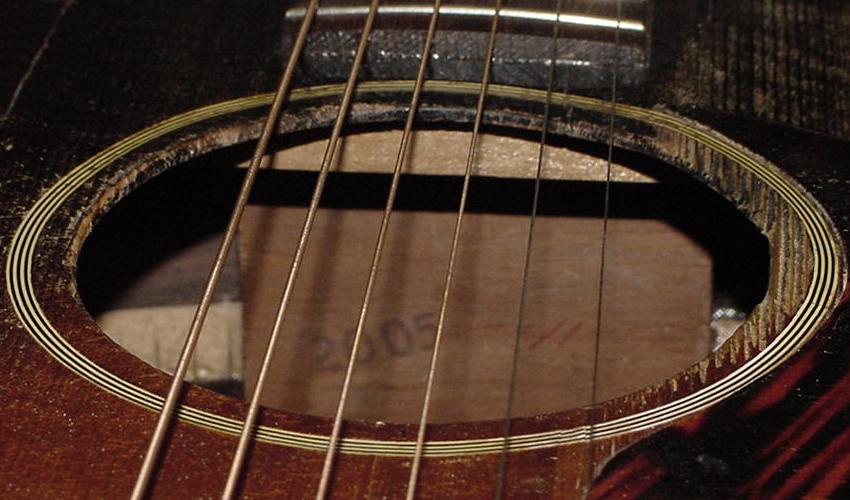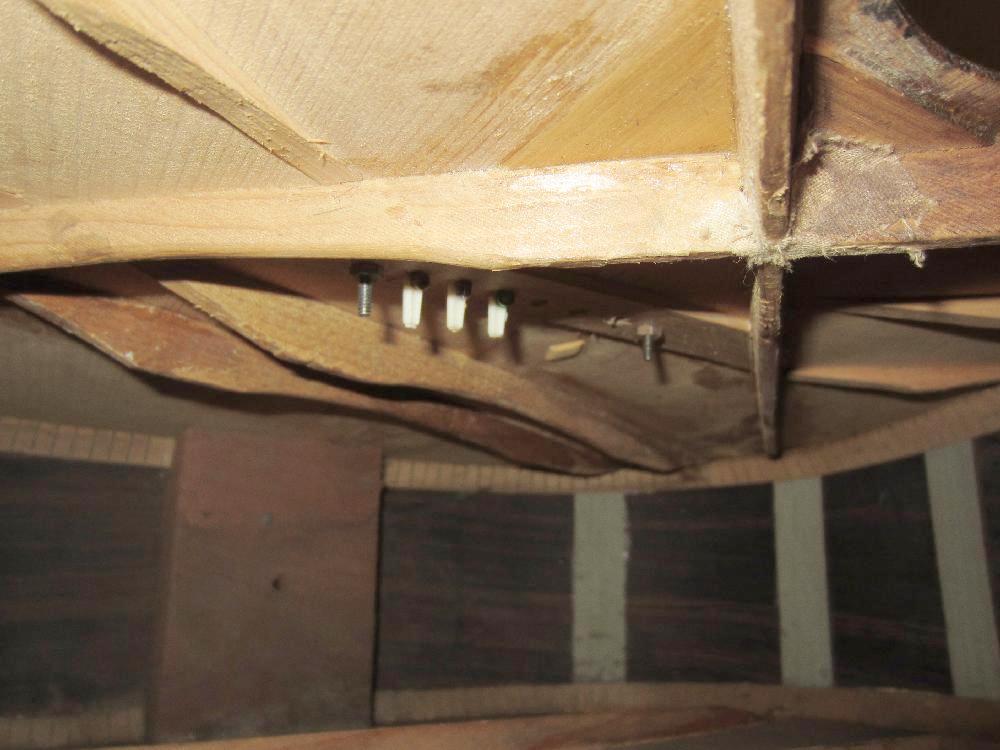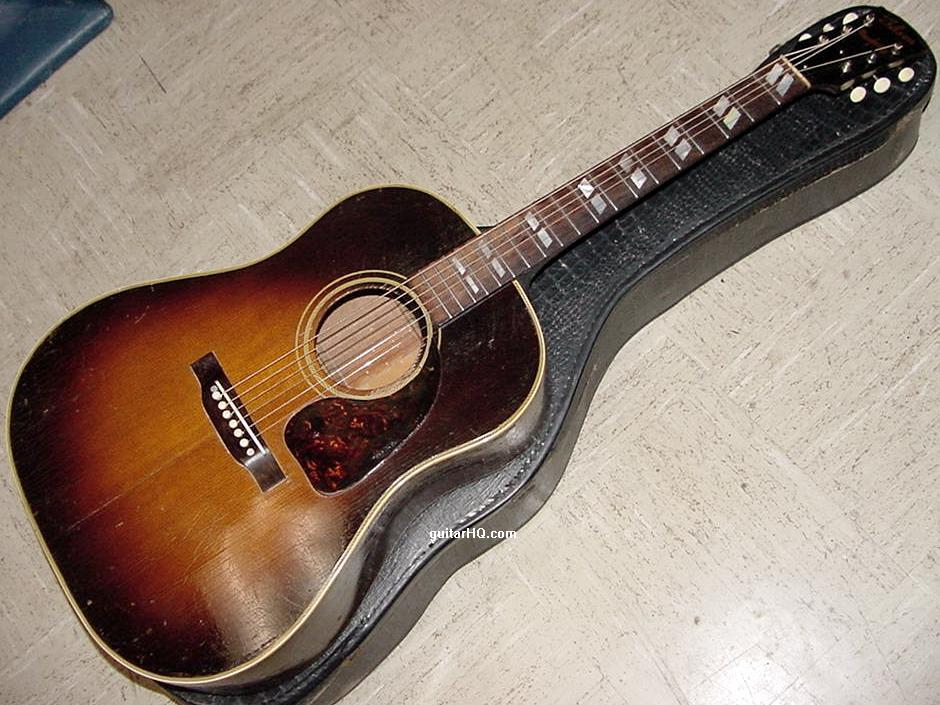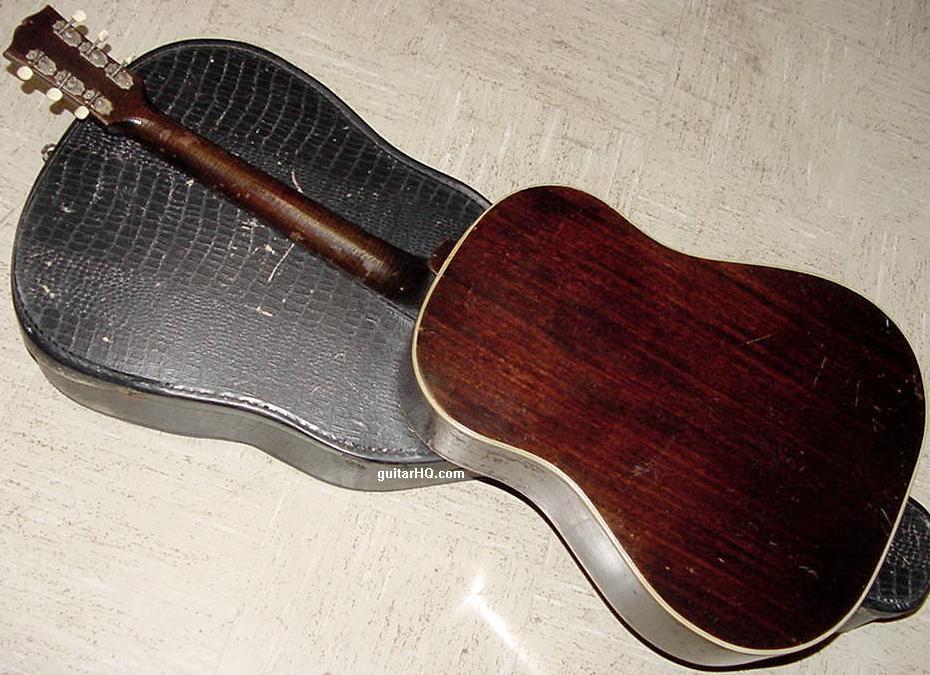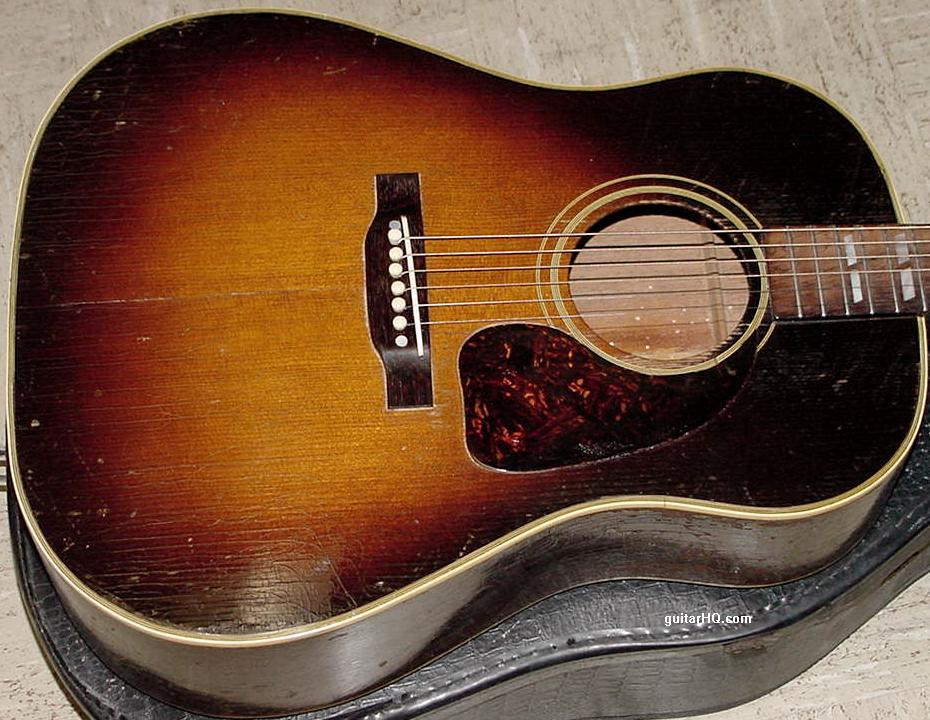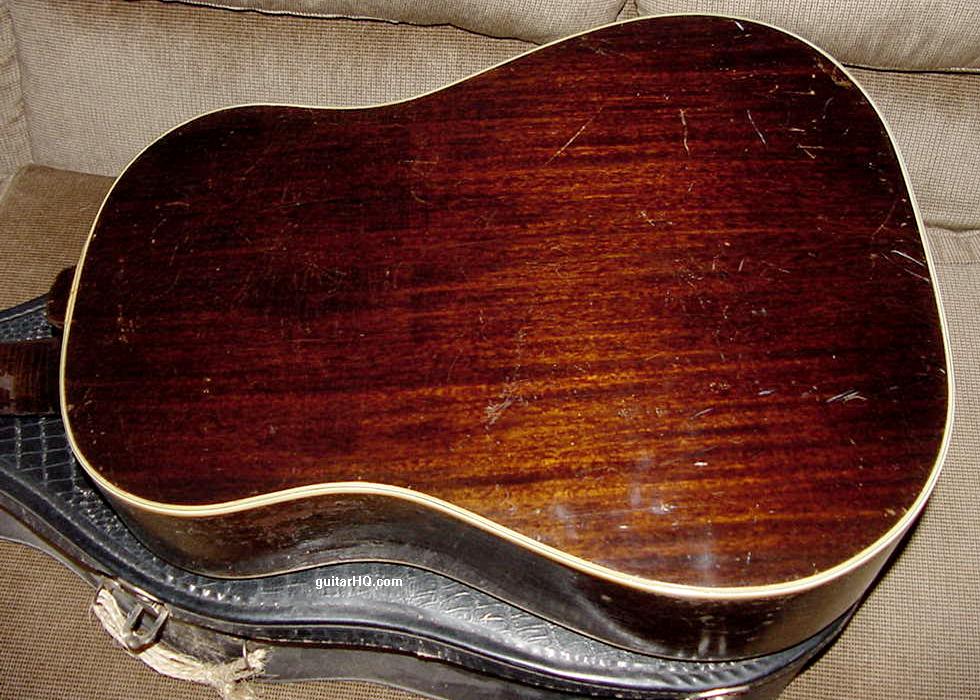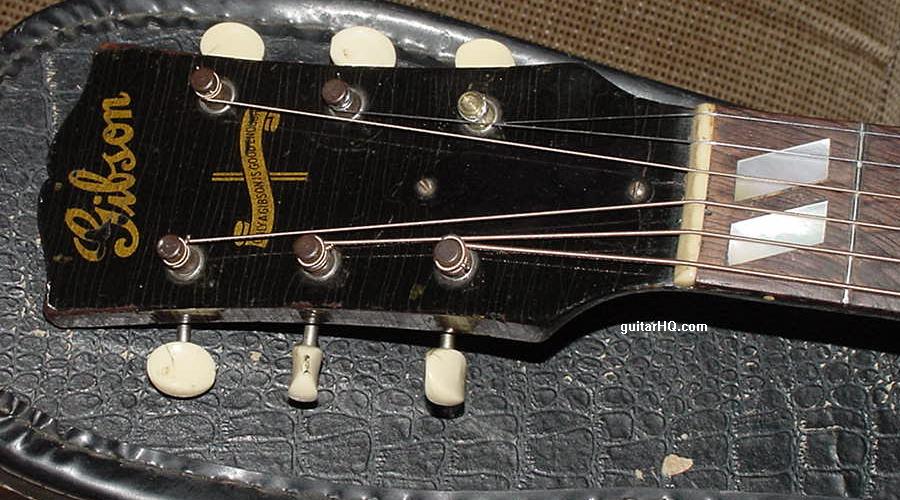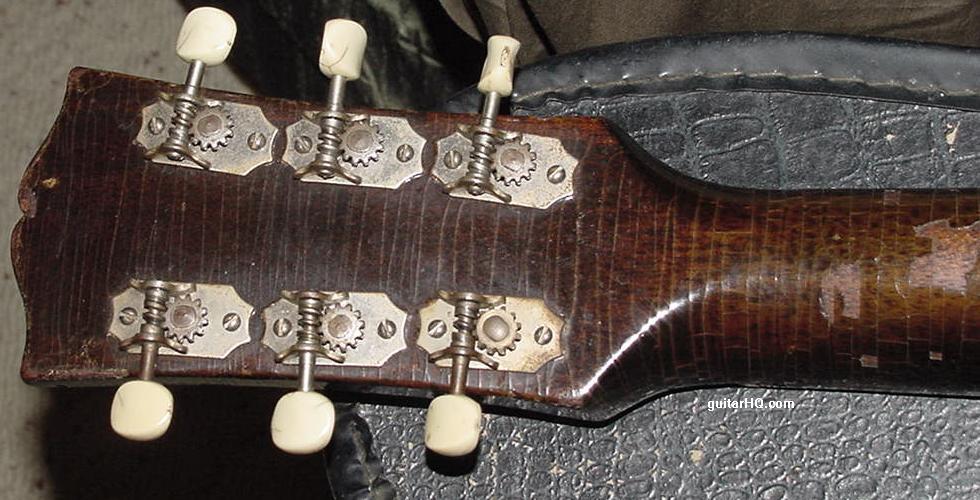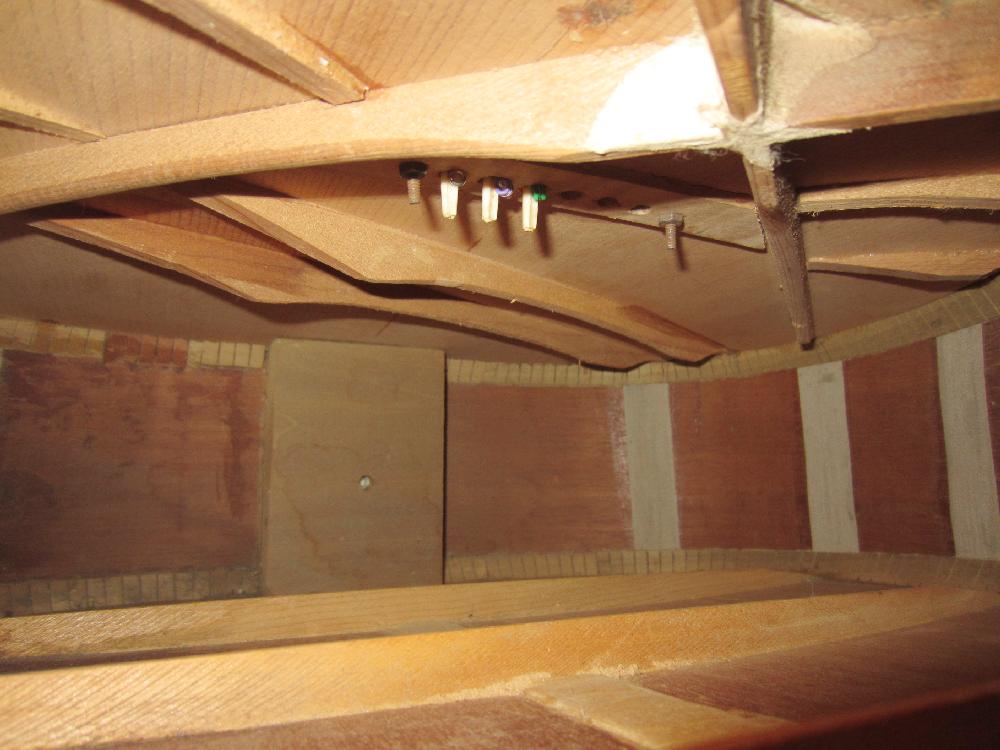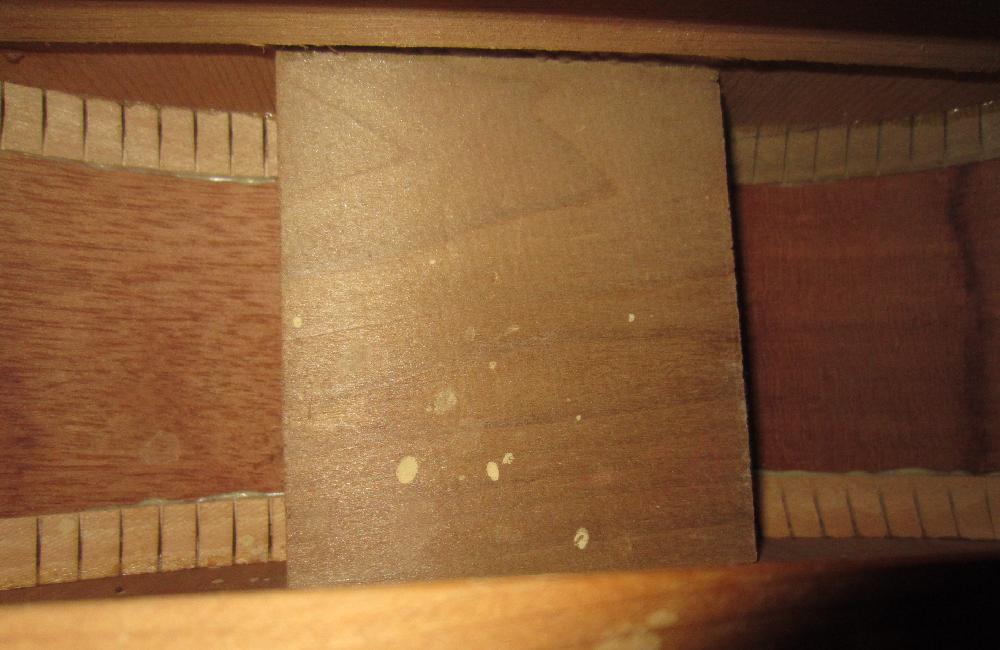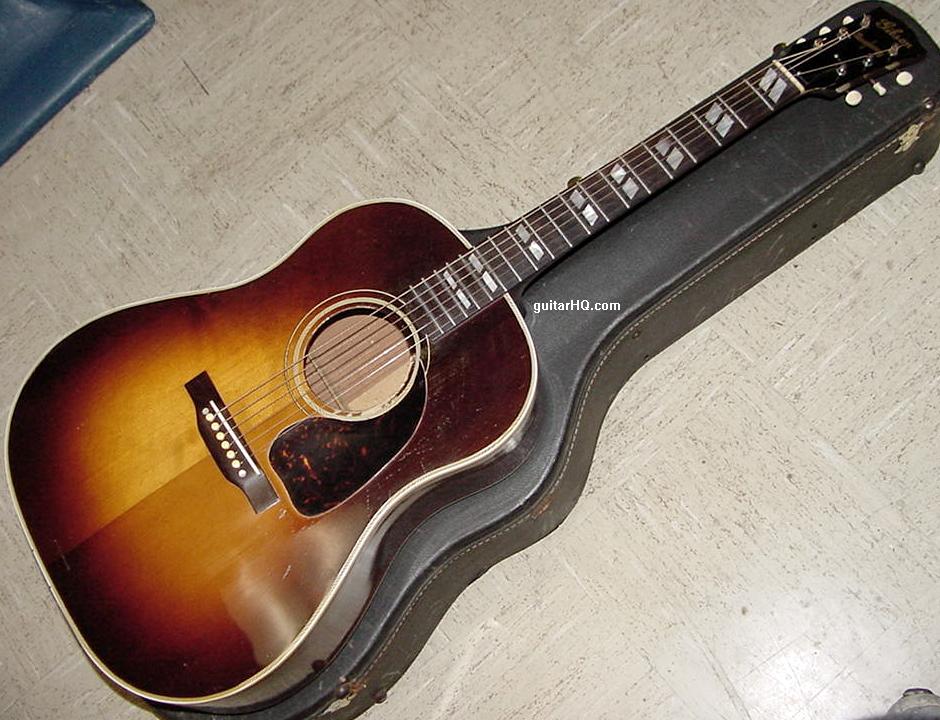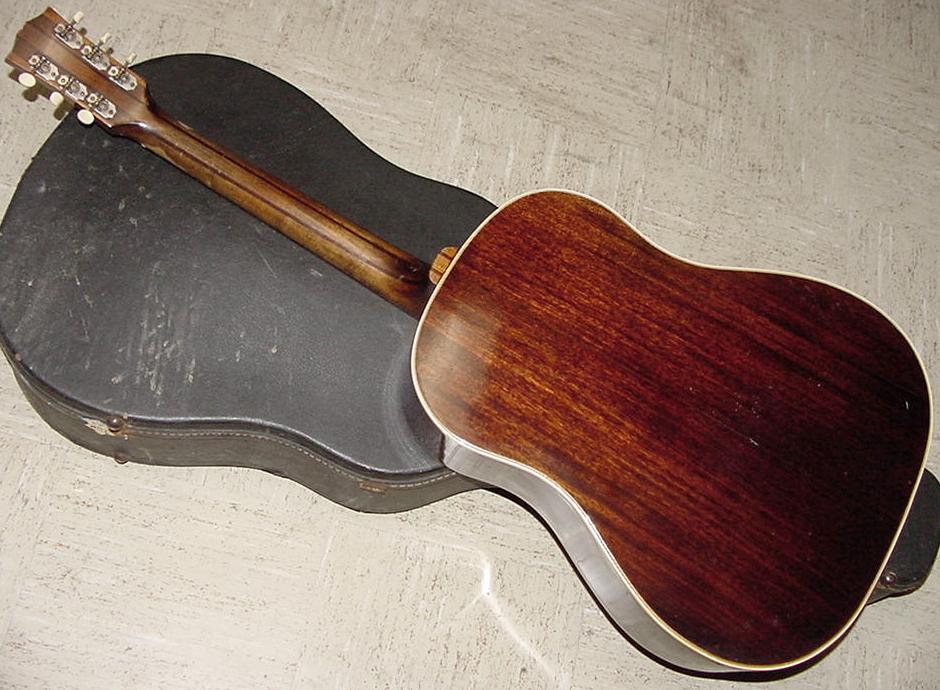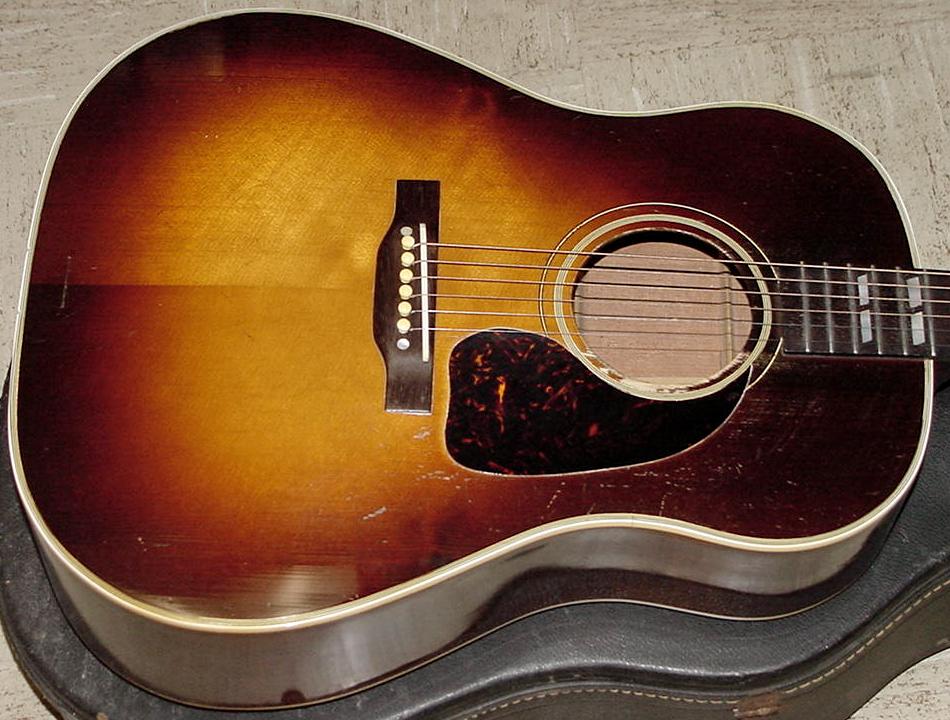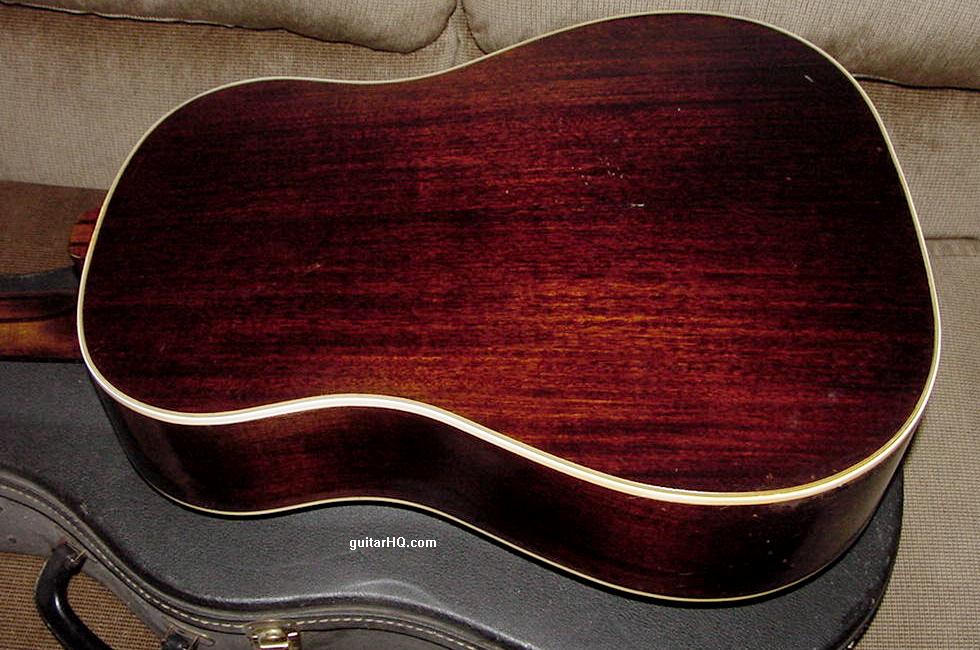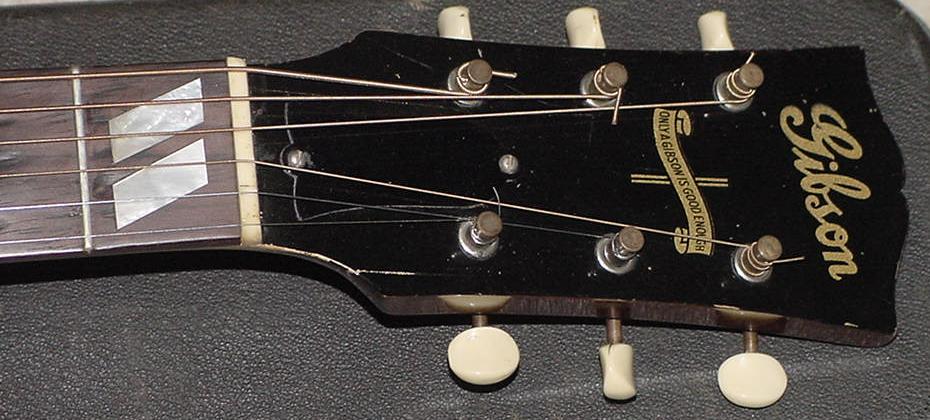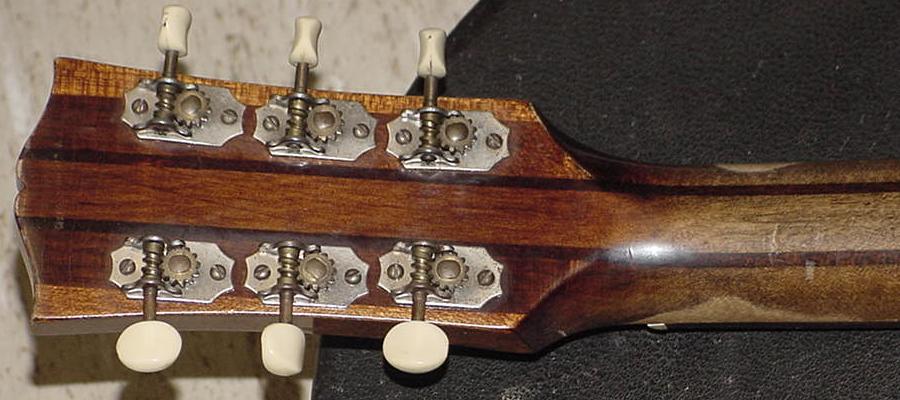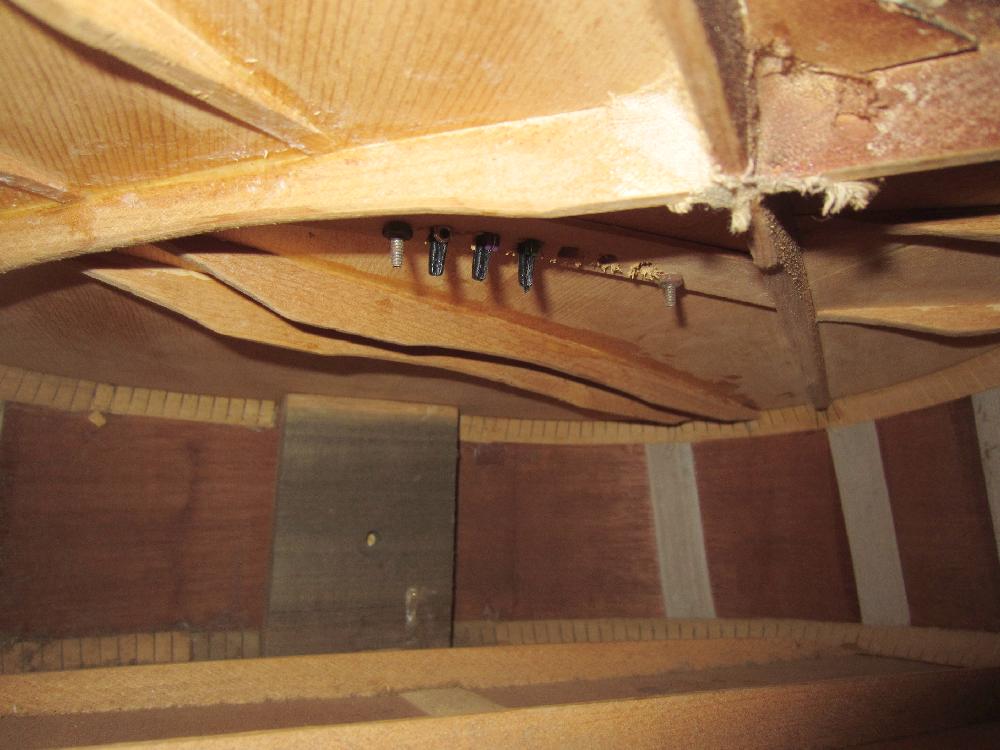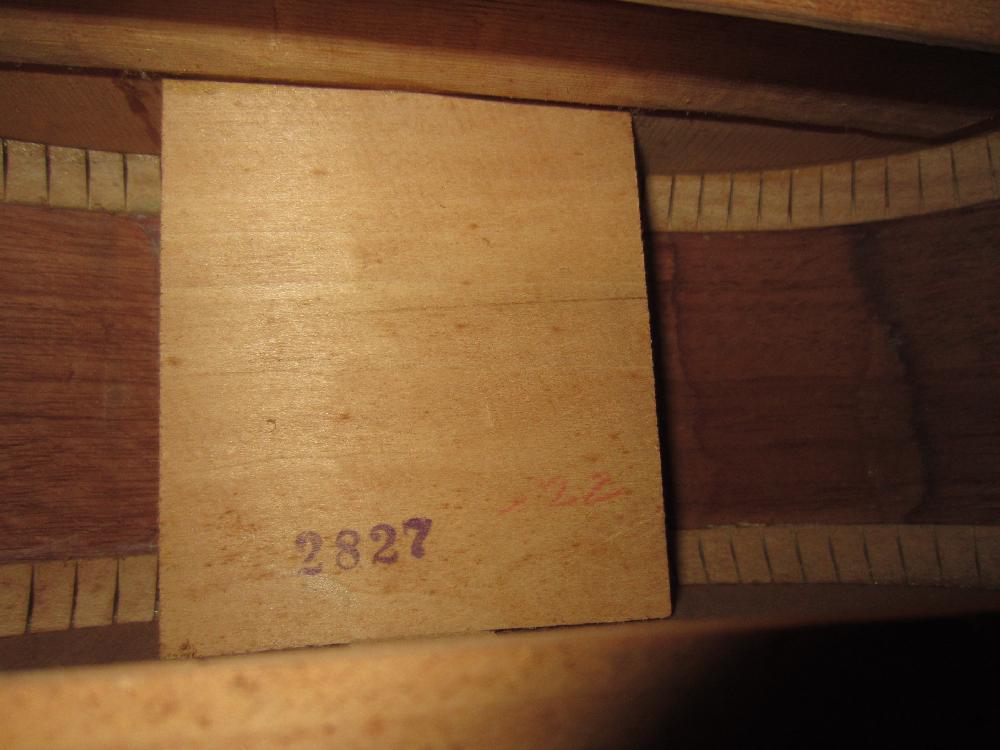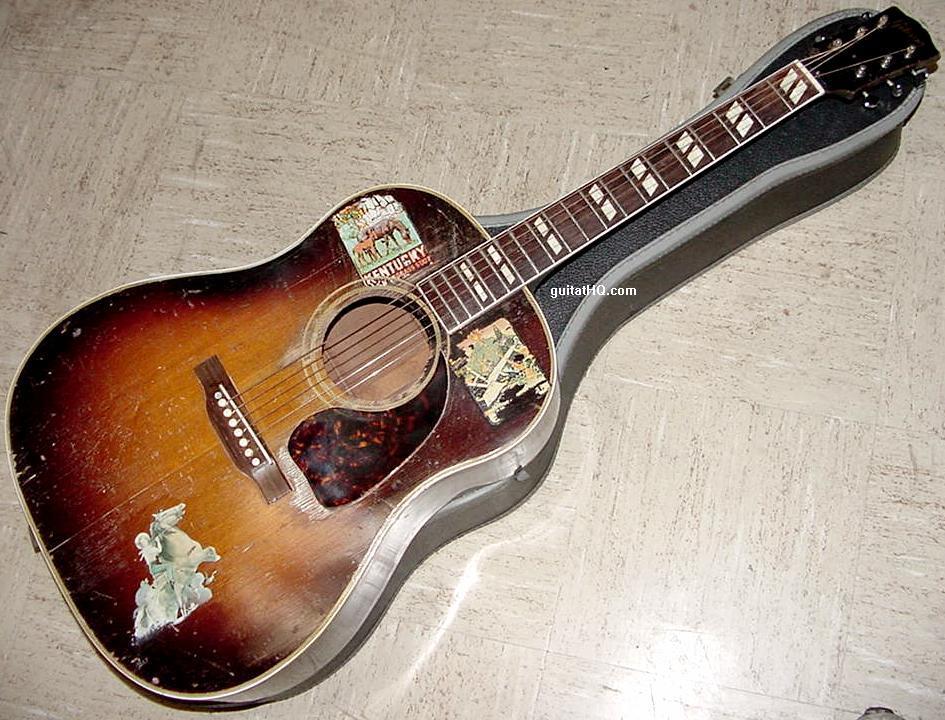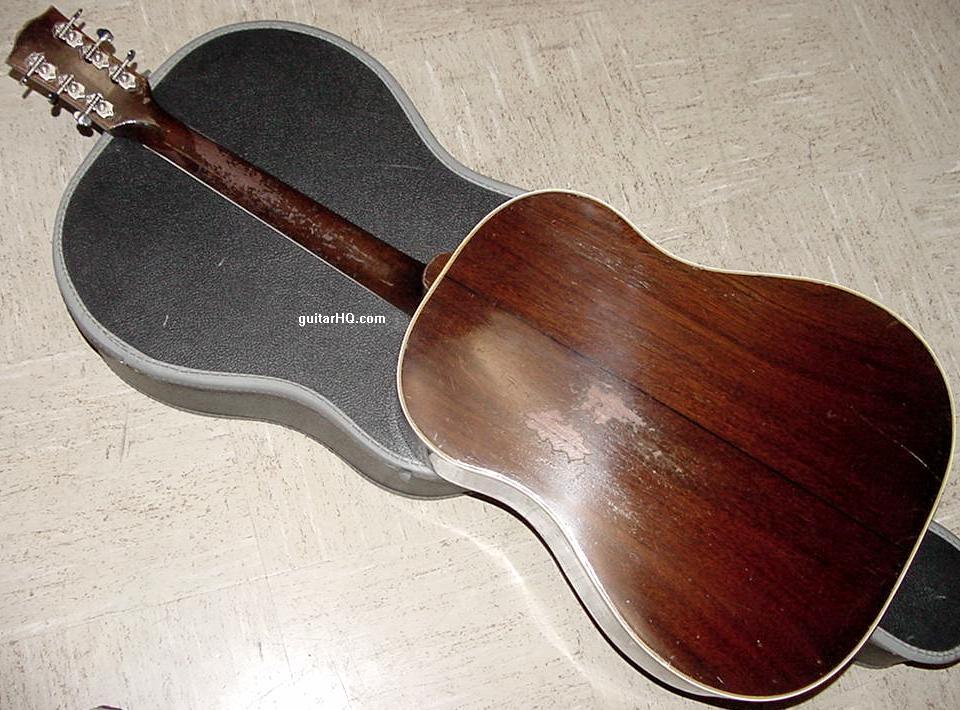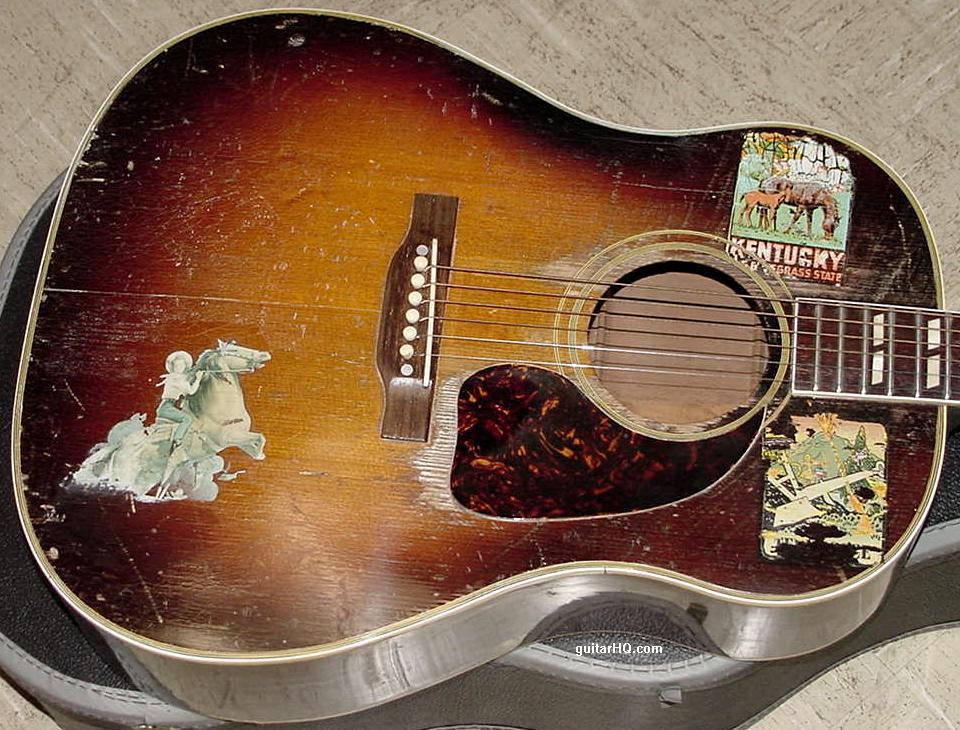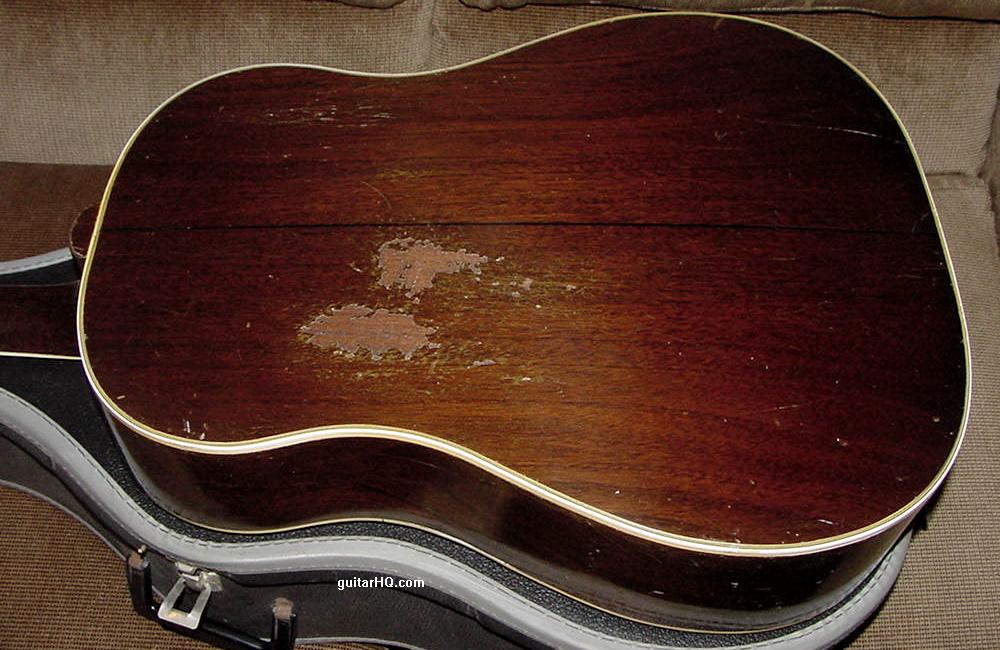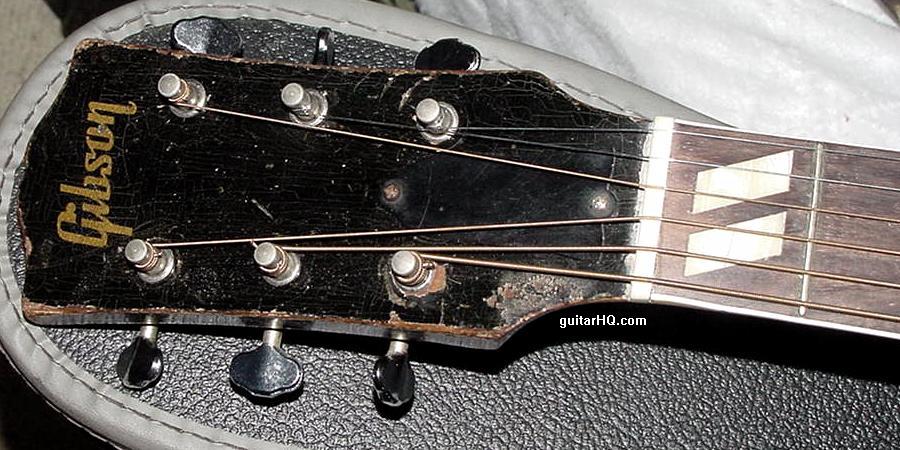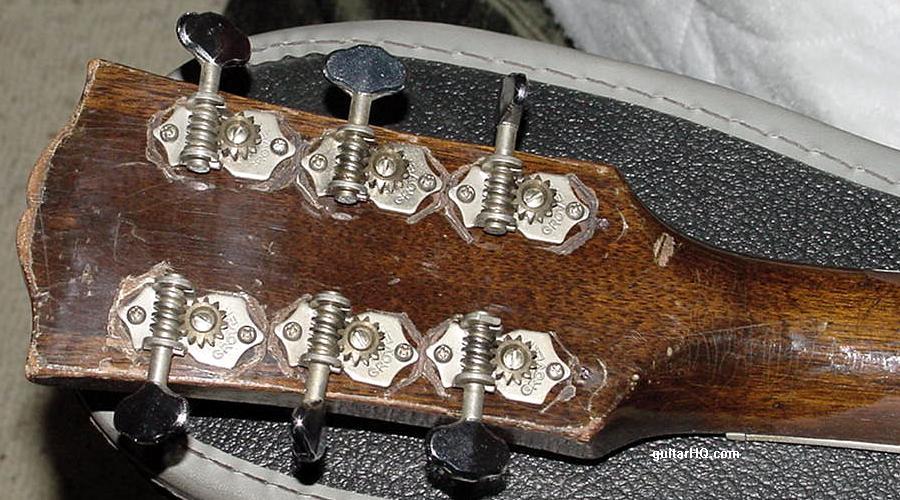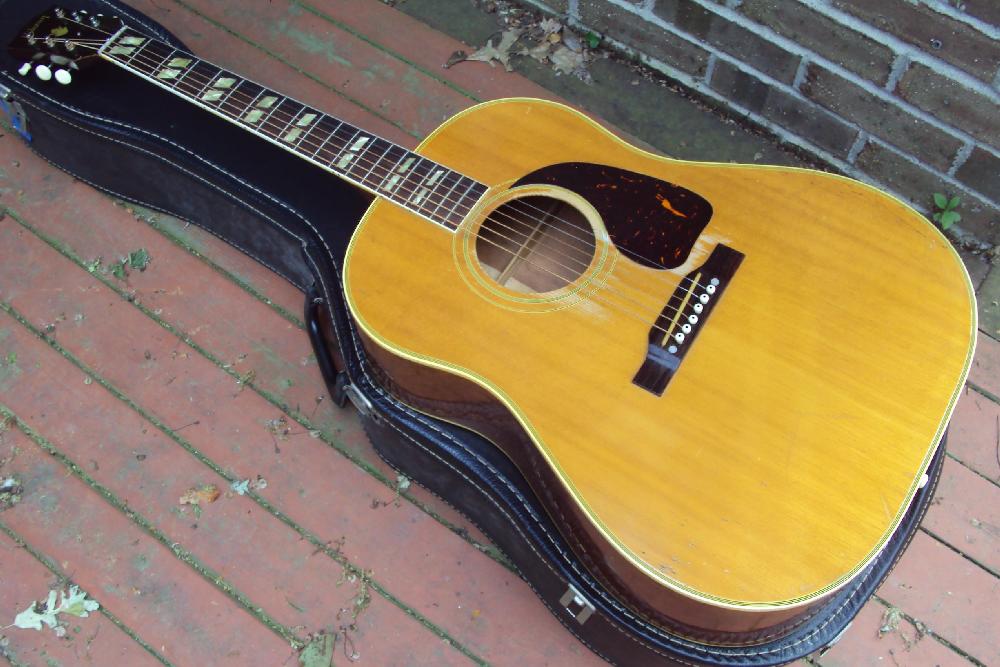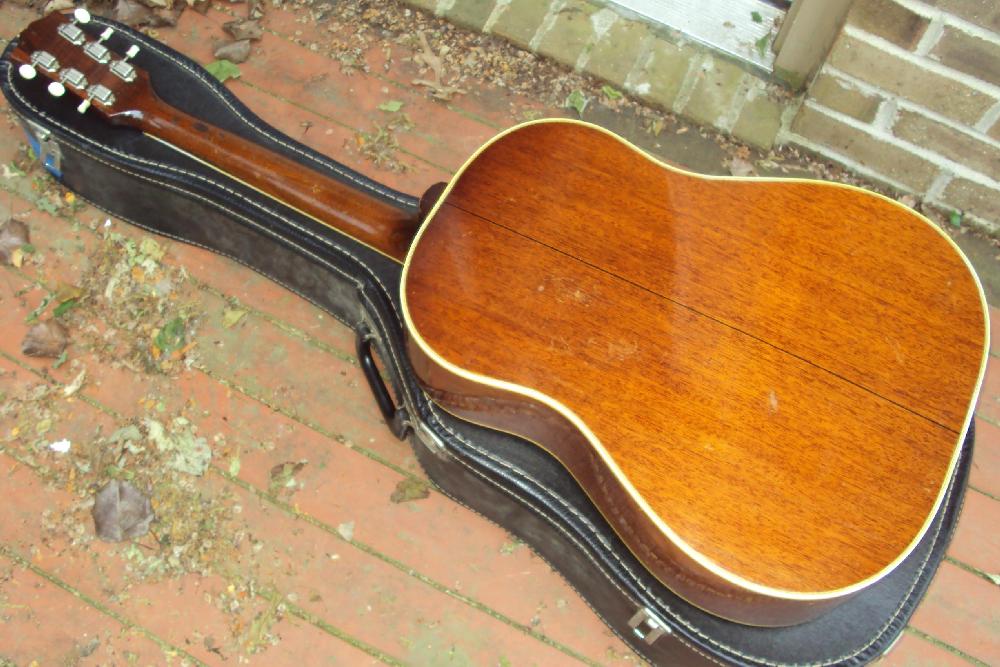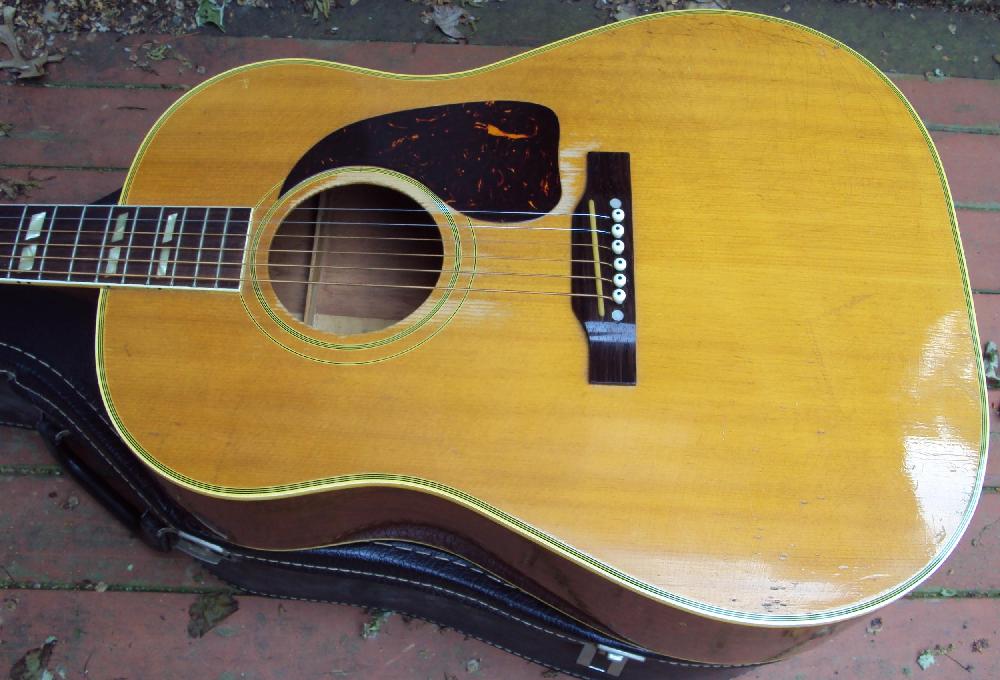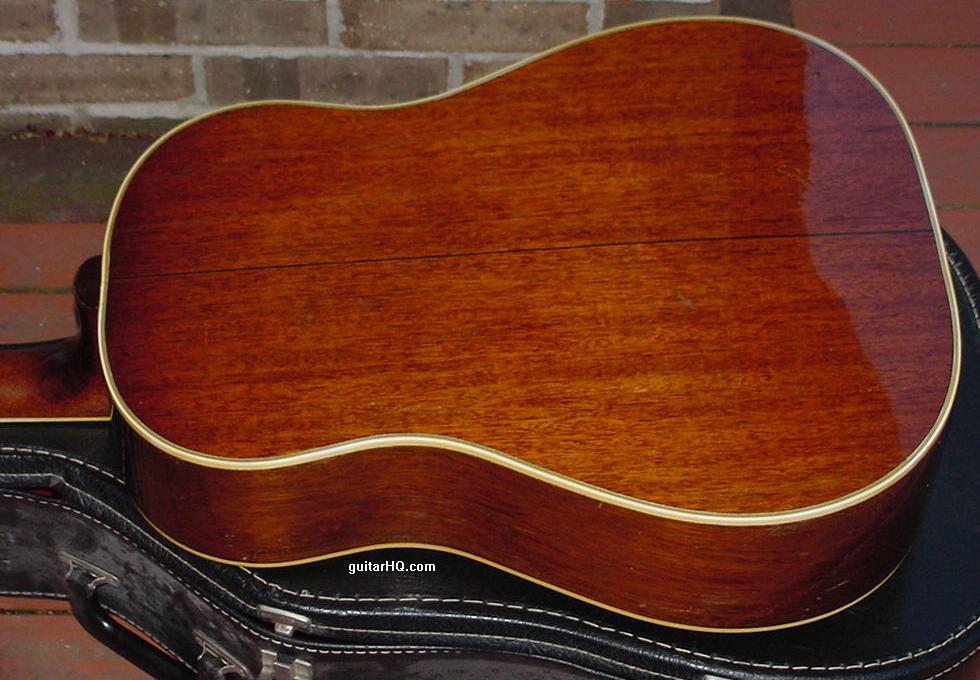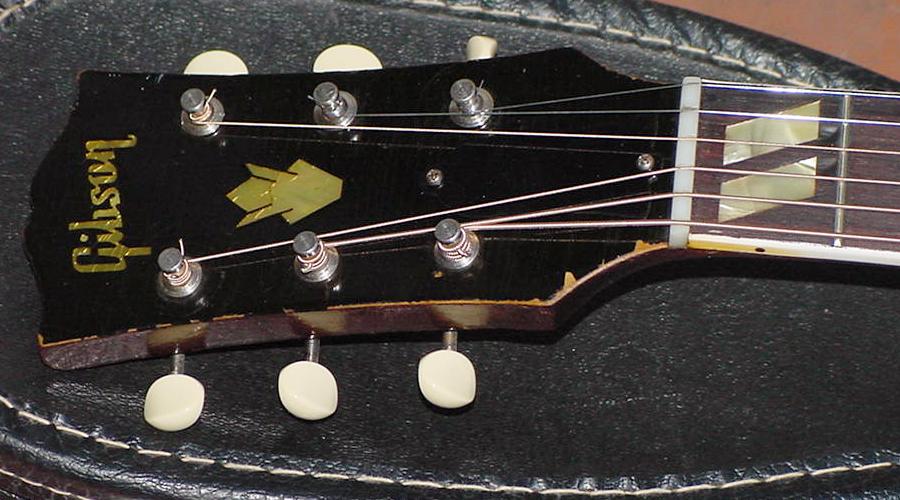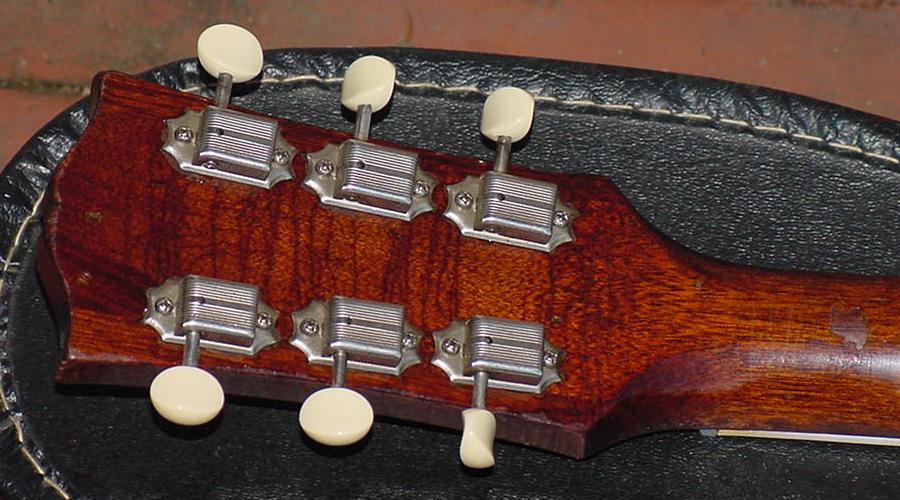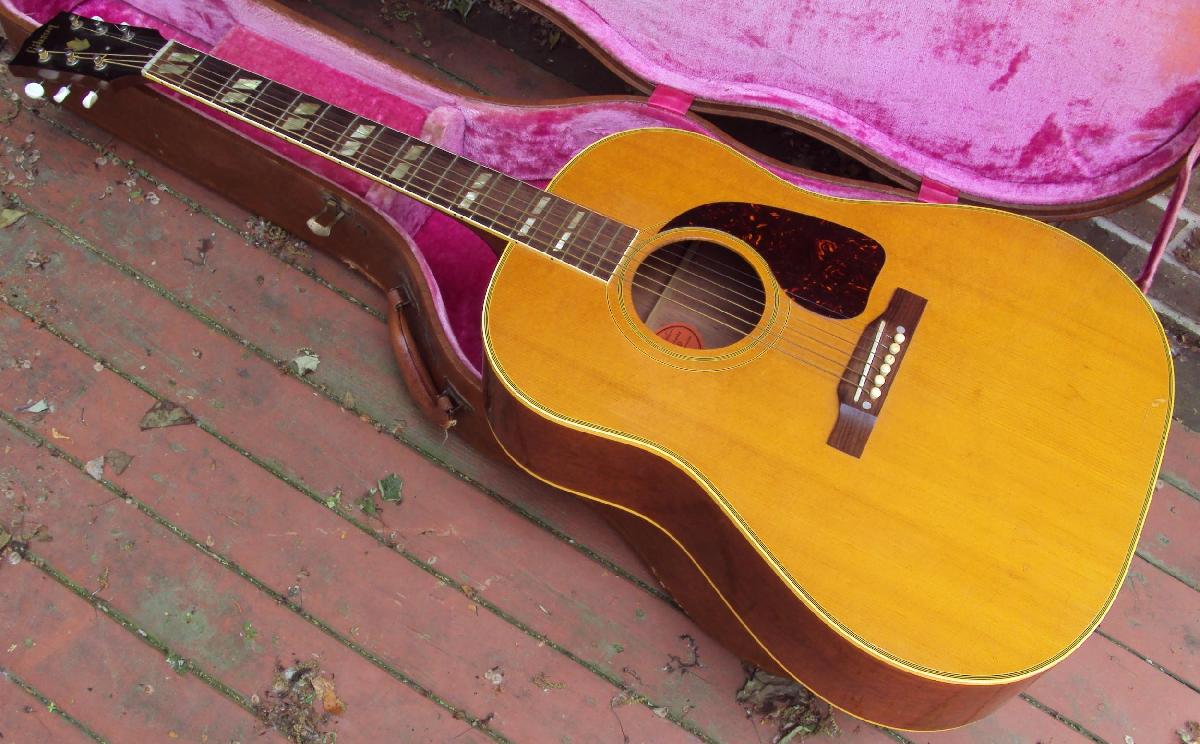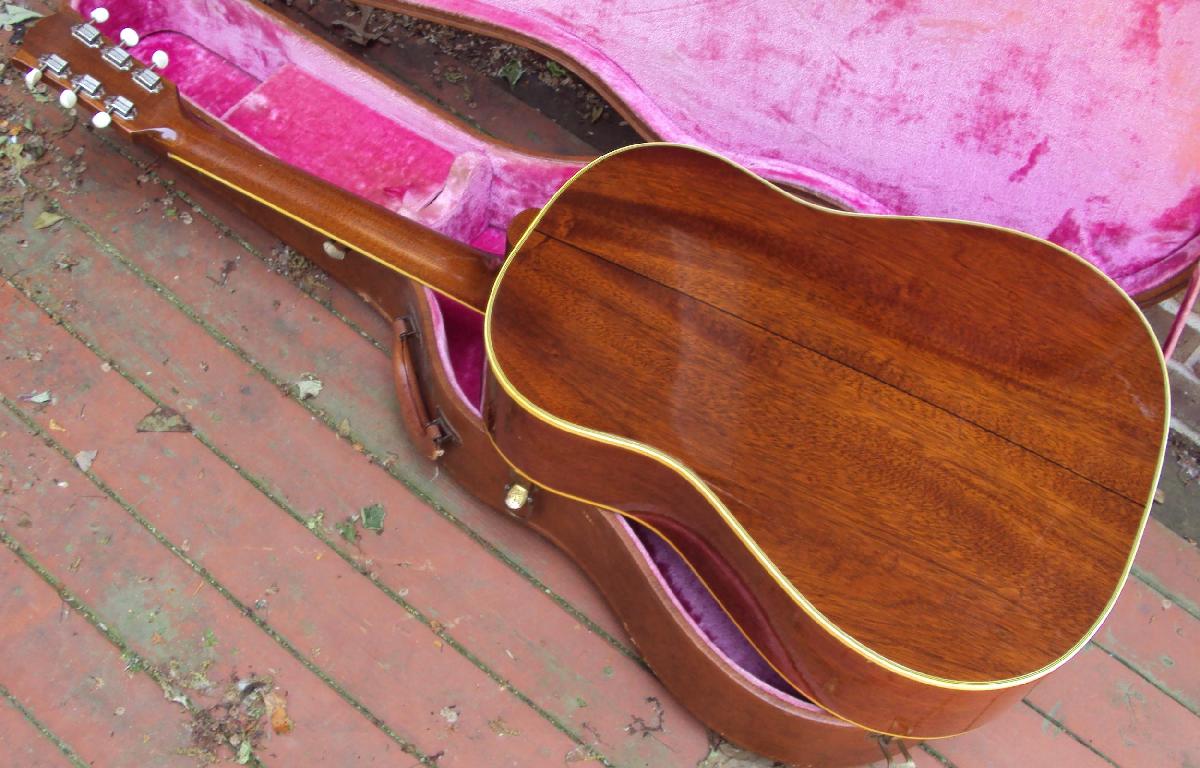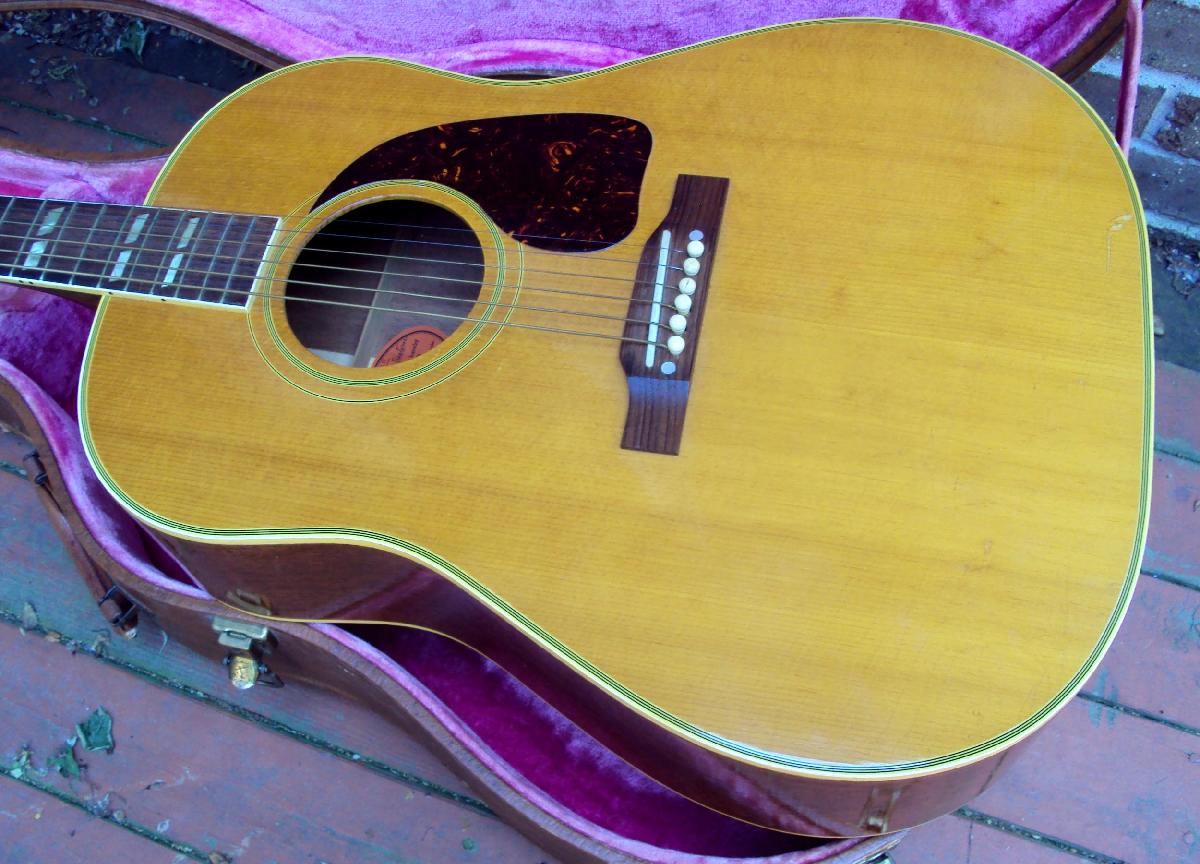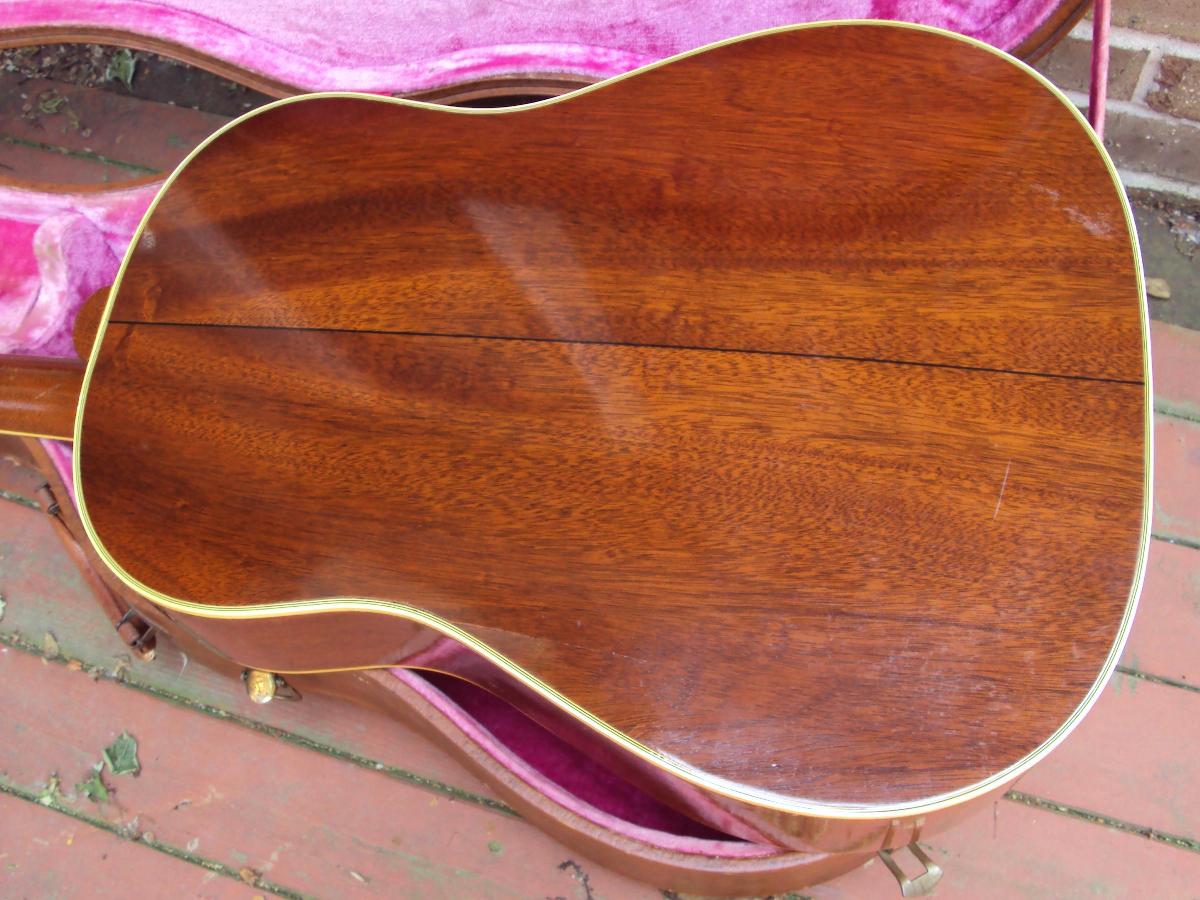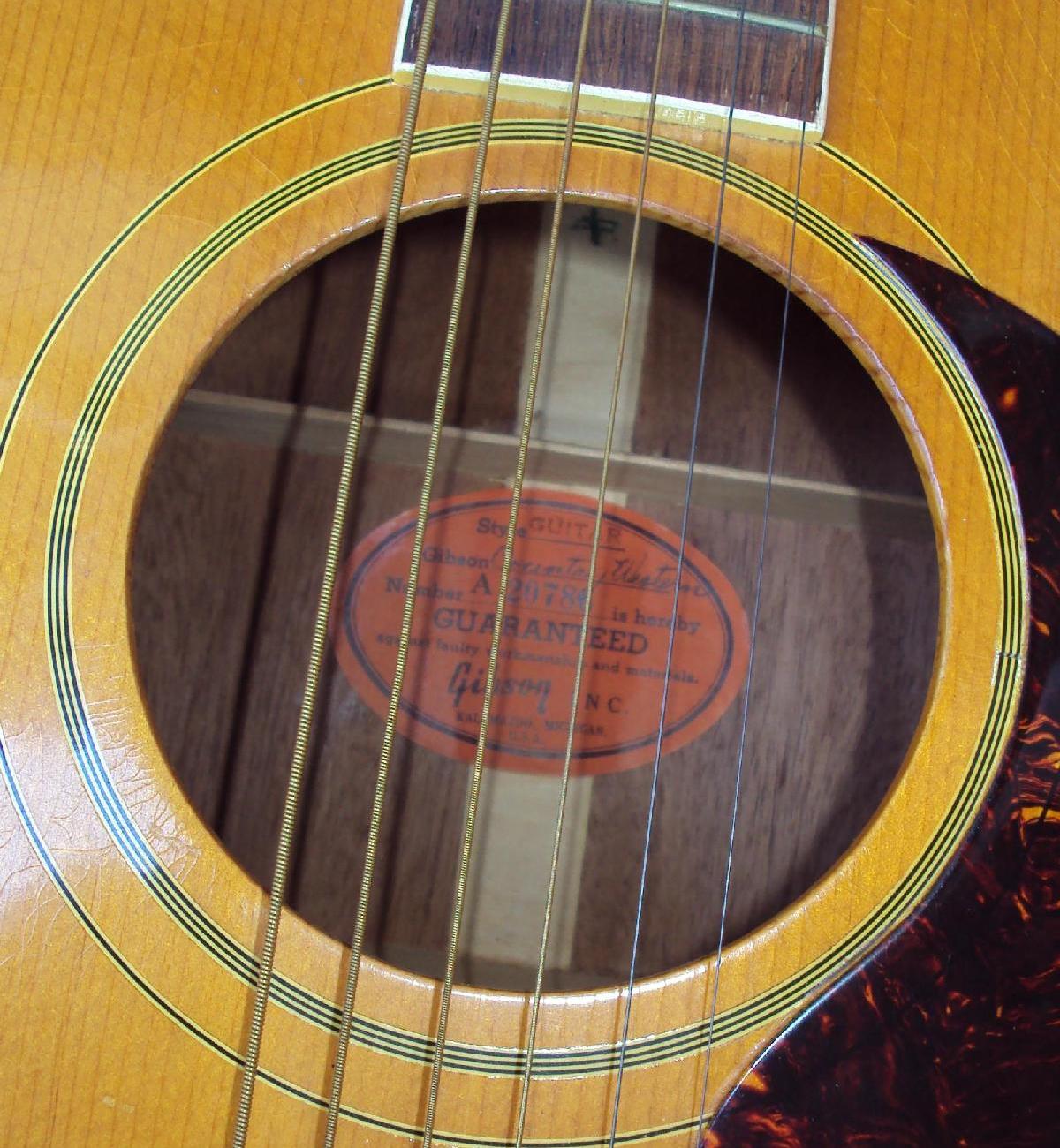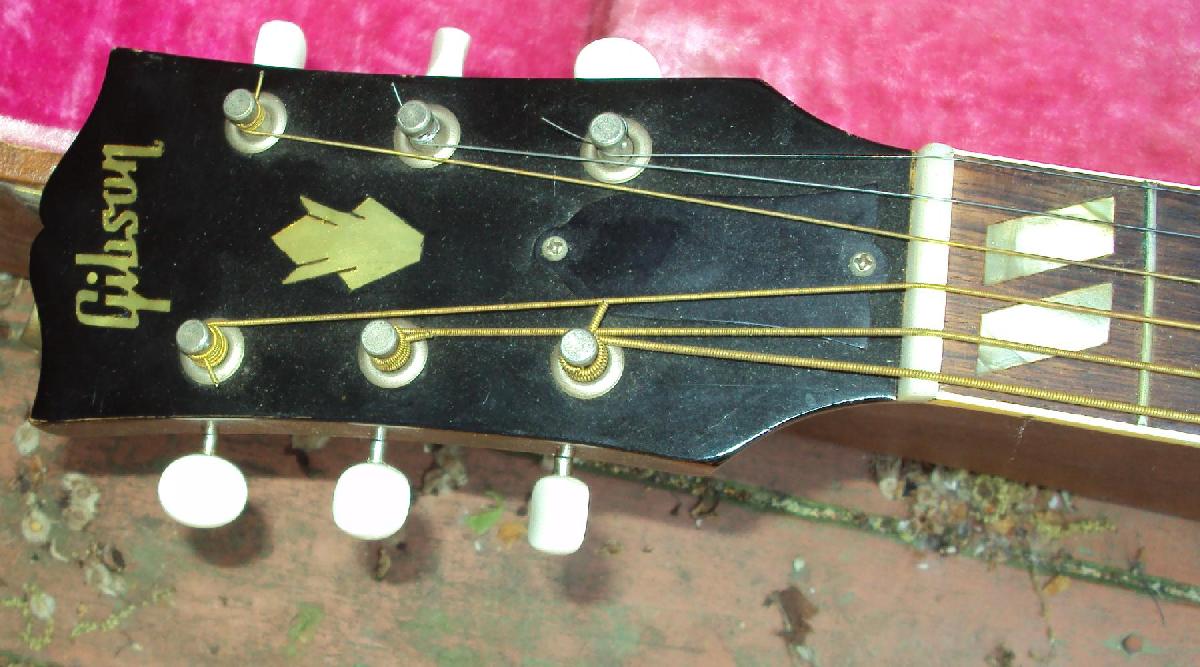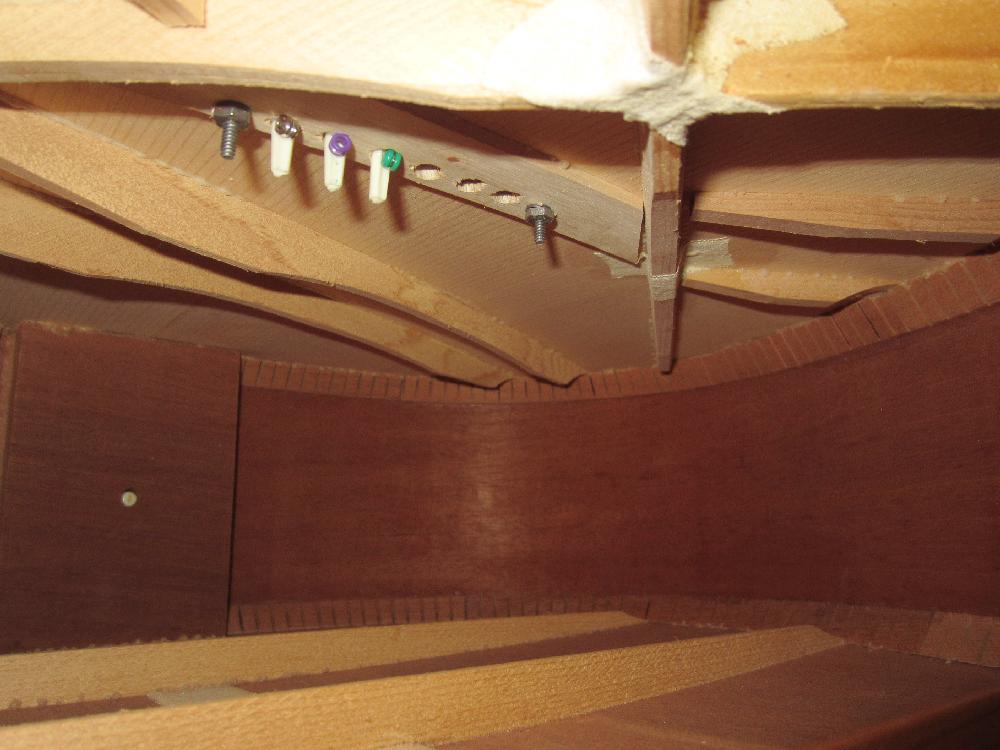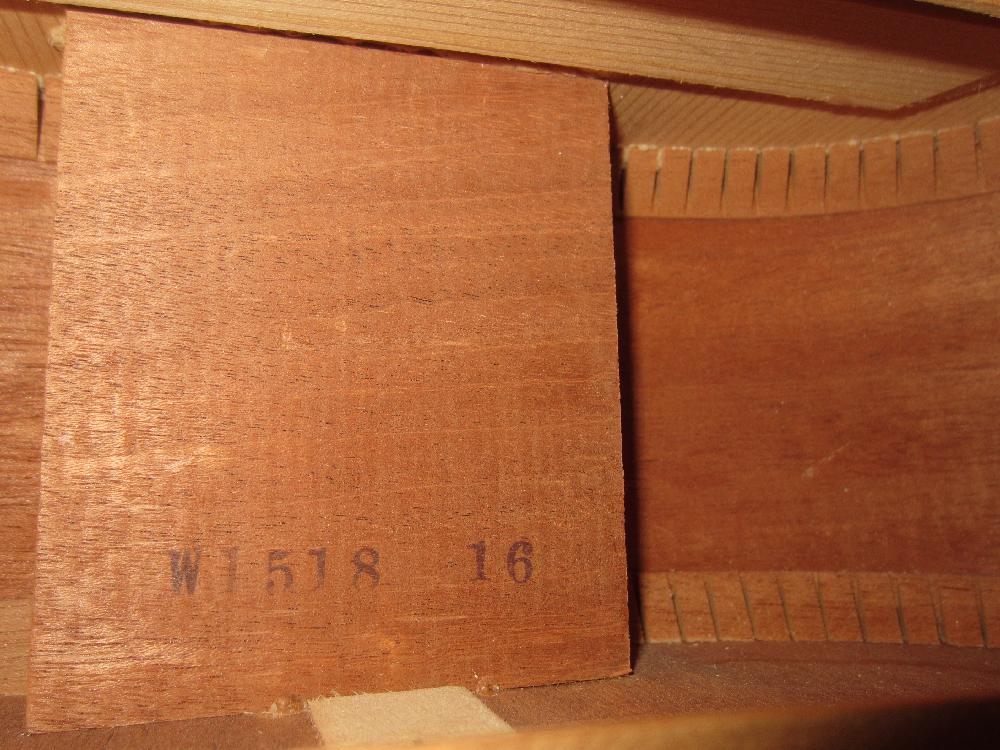|
Gibson SJ Southern Jumbo Flattop Guitar
Description: Gibson SJ Southern Jumbo flat top guitar
Available: 1942 to present (recently reissued by Gibson).
Case: Usually seen in a cardboard alligator case, but hardshell
cases in tweed (during WW2) and brown (1950s) and black (1960s) can also be seen.
Collectibility Rating: 1940's models: B+. 1950's models: B-. 1960's square shoulder models: D-.
Production: (no pre-1948 production numbers) 1948:439, 1949:462, 1950:617, 1951:674,
1952:768, 1953:1008, 1954:802, 1955:1030, 1956:1399, 1957:1326, 1958:636, 1959:1063, 1960:767,
1961:577, 1962:796, 1963:1099, 1964:1772, 1965:1613, 1966:1081, 1967:2296, 1968:2217, 1969:1525.
General Comments:
Rumor has it Gibson made this model for their sales reps
below the Mason-Dixon line. Basically the SJ was a replacement for
the J-55. The Southern Jumbo is a great model, a fancier
version of the J-45. An excellent model, fairly easy to find but
a great guitar. I love this model, especially the "banner logo" versions!
If you need to figure out the exact year of your Gibson SJ guitar, use the FON (Factory Order Number).
This is located inside the body's sound hole, on the neck block or stamped on the
inside back of the guitar.
See the Gibson Serial Number Info web page
for help determining the exact year.
If you have a vintage Gibson SJ Southern Jumbo guitar for sale, please contact me at
cfh@provide.net
- 1942 Gibson Southern Jumbo guitar introduction specs:
-
Officially the SJ wasn't shipped until 1943, but some early models
have 1942 FON numbers. Just keep that in mind. SJ has 16" wide, round
shoulder dreadnought shape, mahogany back and sides and neck.
Note there were a few full batches of Rosewood back and side Gibson SJ models
made in late 1942/1943 (FON batch number 910, 2002/2005),
and some of these two batches had Rosewood sides with a Mahogany back!
Early examples have a Mahogany neck but a poplar or Birch neck with a single
mahogany stripe down the center (3 piece neck) is more common.
(Note five piece necks were also used with no mahogany stripe, but
these are made from maple.)
Mahogany neck block, but by late 1942 poplar neck blocks were used.
Bottom belly bridge (belly towards endpin, which was
the opposite of what all other flattop
Gibsons used after WW2) with 2 pearl dots, some models with rectangular bridge
instead of a bottom belly bridge, multiple soundhole purfling, multiple bound top and back,
constrasting wood strip down center of the back. Only the first few SJ models made had neck binding.
Adirondack 2-piece spruce top, fire striped teardrop shaped pickguard, double
parallelagram pearl fingerboard inlays,
"Only a Gibson is Good Enough" gold silkscreened banner logo,
unbound rosewood fingerboard with 19 frets.
Note 1942 models have higher tuner position on the peghead,
leaving less room for the banner logo. This was changed
in 1943, moving the tuner slightly closer to the nut, giving more room for the banner logo.
(Easy to see, 1942 models have the "D" tuner almost touching the bottom of the "G" in the Gibson logo.)
Early SJ models had a white celluloid heal cap, but this feature
generally went away by batch #2431.
Tuners were 3-on-a-plate Klusons with exposed gears and
"Kluson Mfg Chicago" and "Pat." stamped
into the plate in a circle around one attachment screw, plastic buttons (usually
white but sometimes black).
Some with ebony or maple non-adjustable
truss rod, sunburst finish.
1942/1943 Batch Numbers:
- 7114h and 7115H (1942): contained both SJ and J-45 models.
- 8074h (1942): see guitar below. Maybe the first real batch with SJs. (The "H" means 1942,
regardless of the FON number.) Rosewood back and sides used in this batch.
- #910 (1943): first full and official SJ batch number in 1942/1943,
about 70 guitars all with Indian Rosewood
back and sides (except three examples known in existance with rosewood sides and mahogany back,
one of them with skunk stripe top.) Note Gibson never used Brazilian Rosewood for the backs/sides
of any Southern Jumbo (Indian Rosewood only), but the fingerboards/bridge were Brazilian.
Check tuner position (as discussed above) to determine if it's 1942 or 1943.
- #914: also had rosewood back/sides SJs.
- #2005 (1943): second SJ batch, all with Indian Rosewood back/sides, probably another batch of 70.
Last SJ batch using rosewood back/sides.
- #2110 (1943): third SJ batch, and the first SJ batch with mahogany back and sides,
tortoise pickguard (not fire striped).
- #2119 (1943): fourth SJ batch, fire-striped pickguards.
- #2139 (1943): fifth SJ batch, the first with the thin cog wheel Klusons tuners, tortoise pickguards.
- #2150 (1943/1944): sixth SJ batch, the first SJ batch with poplar neck blocks.
This batch might be the last 1943 or the first 1944 batch.
At this batch several unique features are noticeable like
cream colored bridge screw cover dots (not pearl), and an very thin finish.
The wood pores were not filled completely and not sanded even, only buffed.
1943-1945 FON chronological order:
- 2005 to 2827 (1943/1944): mahogany neck block still seen as late as FON 2827, but poplar seen starting
around FON 2150. (For example, FON 2685 with a poplar block is 1944.)
- No FON (1945): poplar neck block.
- 366 to 661 (1944) and then upto 1xxx: poplar blocks
- No FON (again 1945): mahogany neck block
The skunk stripe is a unique feature and is quite rare but it might
not be possible to assign it to a single year. Mostly seen in 1943 but this
does not mean automatically all skunk stripe SJs are built in 1943.
SJ FONs.
From J.Spann's book on factory order numbers, here's some documented
FONs from the 1942 to 1945 era. Note he doesn't list exact years during
this period, but from what has been seen, years can be approximated.
FONs weren't used 1945, so there's none listed.
- 7114h = SJ and J45 batch 1942.
- 7115h = SJ and J45 batch 1942.
- 8074h = SJ. 1942 first full SJ batch. Binding on neck, rosewood b/s, old peghead logo.
- 8075h = SJ 1942
- 910 = SJ 1943. Considered first non bound neck rosewood b/s banner logo SJ batch, March 1943.
- 914 = SJ 1943
- 2003 = SJ 1943
- 2005 = SJ 1943
- 2022 = SJ 1943
- 2110 = SJ 1943
- 2119 = SJ 1943
- 2139 = SJ 1943
- 2150 = SJ 1943/1944
- 2224 = SJ 1944
- 2225 = SJ 1944
- 2317 = SJ 1944
- 2318 = SJ 1944
- 2385 = SJ 1944
- 2424 = SJ 1944
- 2426 = SJ 1944
- 2431 = SJ 1944
- 2633 = SJ 1944
- 2685 = SJ 1944
- 2735 = SJ 1944
- 2745 = SJ 1944
- 2827 = SJ 1944
- 2981 = SJ 1944
- 3749 = SJ 1944
- 4372 = SJ 1944
- 4519 = SJ 1944
- 4520 = SJ 1944
- 366 = SJ 1944
- 372 = SJ 1944
- 561 = SJ 1944
- 633 = SJ 1944
- 661 = SJ 1944
- 1943 Gibson Southern Jumbo guitar specs:
- tortoise grain pickguard material,
no neck heel celluloid cap
(last known FON batch with heal cap 2424, the first one without FON 2431, about mid-1943),
Poplar neck block (instead of mahogany).
Most necks have no metal adjustable
truss rod (war time metal shortage), neck shape is usually HUGE because
of the lack of a truss rod.
When there is no metal adjustable truss rod,
often Gibson inlayed a "V" shaped non-adjustable maple or ebony
"truss rod" into the neck. This can often be seen from the face of the peghead
as a upside down "V" in the black peghead face (closest to the nut).
(Since Gibson didn't use a peghead veneer at this time, the "V" wood truss rod's
glue joints often show thru the black peghead paint. This style of neck reinforcement
was what Gibson used before 1921 when they invented the adjustable truss rod.)
Also Maple neck with two mahogany stripes down the center (5 piece neck) often used
instead of Mahogany.
Kluson tuners no longer had circle stamp (still exposed gears, but riveted instead
of screwed in place) and shaft size decreased to save metal. (These are "3 on a plate"
open-back style tuners.)
By late 1943 tuners are individual open-back Klusons, and not 3-on-a-plate style.
Tuner position moved down the peghead slight (closer to the nut) to provide
more room for the banner logo.
During 1943 some SJ models had non-bookmatched two piece Adirondack spruce tops.
Or some with four piece Adirondack spruce tops (four piece top SJs still
sound great, though they don't look good). Even others had
a black (skunk) strip down the middle of the top.
Laminated maple back and sides (stained dark) are also sometimes seen (rare).
- 1944 Gibson Southern Jumbo guitar specs:
-
Around May 1944 CMI was now
Gibson's new owners, and they had some financial pull to get the new materials
for guitars by mid-1944.
Hence by mid 1944 two piece bookmatched Sitka spruce tops appear and
most SJs now have a metal adustable truss rod.
Tuners now individual open-back Klusons, and not 3-on-a-plate style.
- 1945 Gibson Southern Jumbo guitar specs:
-
Mahogany neck block and Mahogany neck used exclusively again.
Two piece bookmatched Sitka spruce top.
FON no longer used.
- 1946 Gibson Southern Jumbo guitar specs:
- No "Only a Gibson..." banner, but still used
old style "Gibson" gold script logo.
- 1947 Gibson Southern Jumbo guitar specs:
- Fingerboard inlays now
pearloid (celluloid, instead of pearl). In late 1947 binding was added to the fingerboard.
(So pearloid inlays appeared before neck binding.)
- 1948 Gibson Southern Jumbo guitar specs:
- new style "Gibson" gold block logo.
Tuners are now closed-back individual Klusons with plastic buttons.
- 1949 Gibson Southern Jumbo guitar specs:
- "top belly"
bridge (belly towards soundhole, as used on most other flat tops models of this period).
This style of belly bridge is better, as the belly does not interfere with
the vibration of the top between the bridge and the endpin.
- 1954 Gibson Southern Jumbo guitar specs:
- natural finish offered and called the
"SJN" ("N" for natural top).
- 1955 Gibson Southern Jumbo guitar specs:
- Longer pickguard with point at upper
bout, one additional fret added (20 frets total), lower non-scalloped top braces used,
pickguard shape changed from teardrop to a pointed style.
- 1956 Gibson Southern Jumbo guitar specs:
- pearl "Gibson" peghead logo replaces gold silkscreen,
and pearl crown peghead design added,
natural finish now called the "Country Western".
- 1960 Gibson Country Western guitar specs:
- Country Western renamed "SJN" (Southern Jumbo Natural).
- 1961 Gibson Southern Jumbo, SJN guitar specs:
- Adjustable saddle bridge, cherry sunburst also offered.
- 1962 Gibson SJN guitar specs:
- SJN renamed "SJN Country Western".
- 1963 Gibson Southern Jumbo and SJN Country Western specs:
- Square shoulder
dreadnought body shape, 3 point pickguard, plastic bridge.
- 1964 Gibson SJ and SJN guitar specs:
- rosewood bridge with adjustable saddle.
- Gibson Southern Jumbo and SJN Country Western discontinued 1977, and then reintroduced in 1991
(with round shoulders). Model still available today.
|
